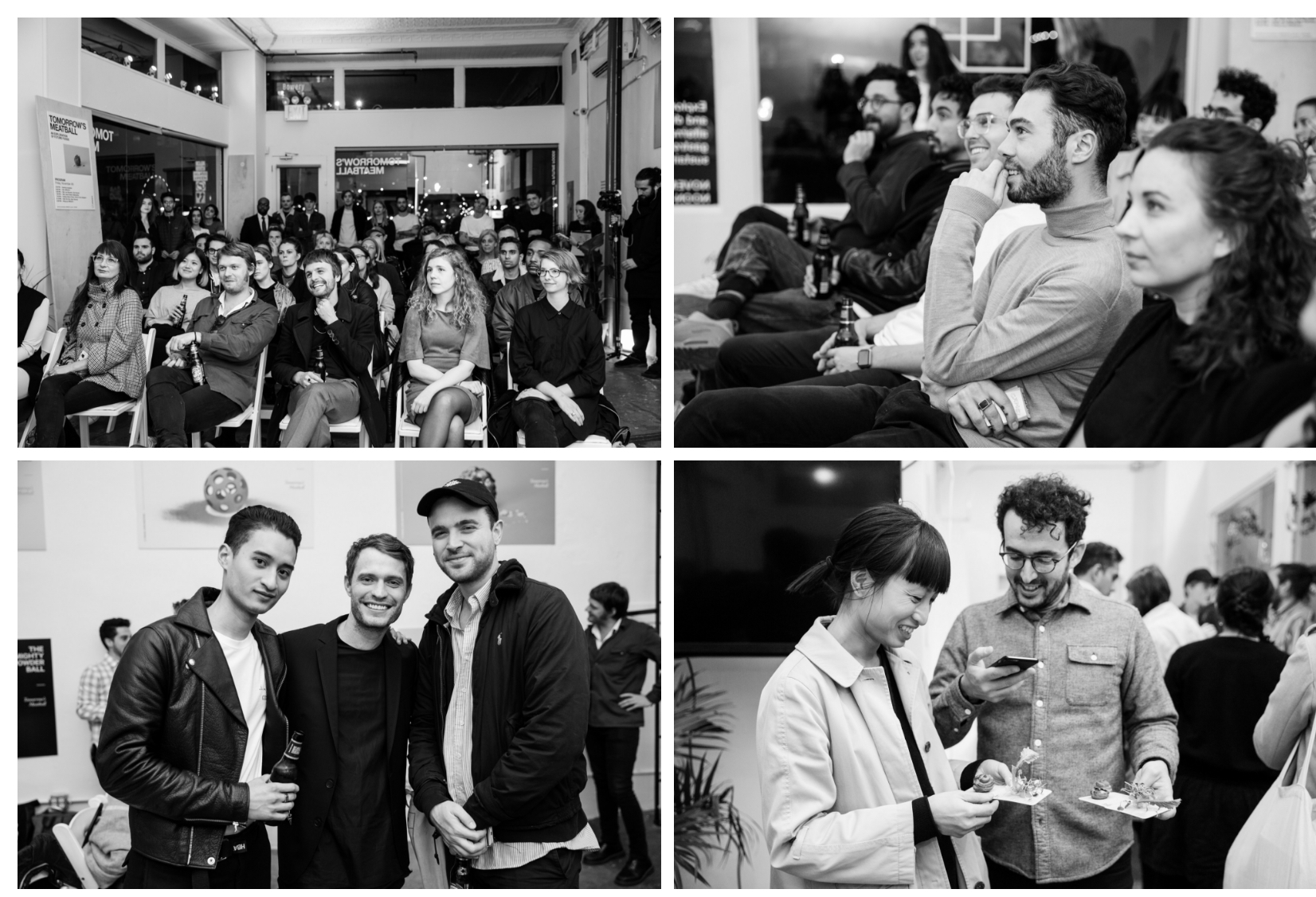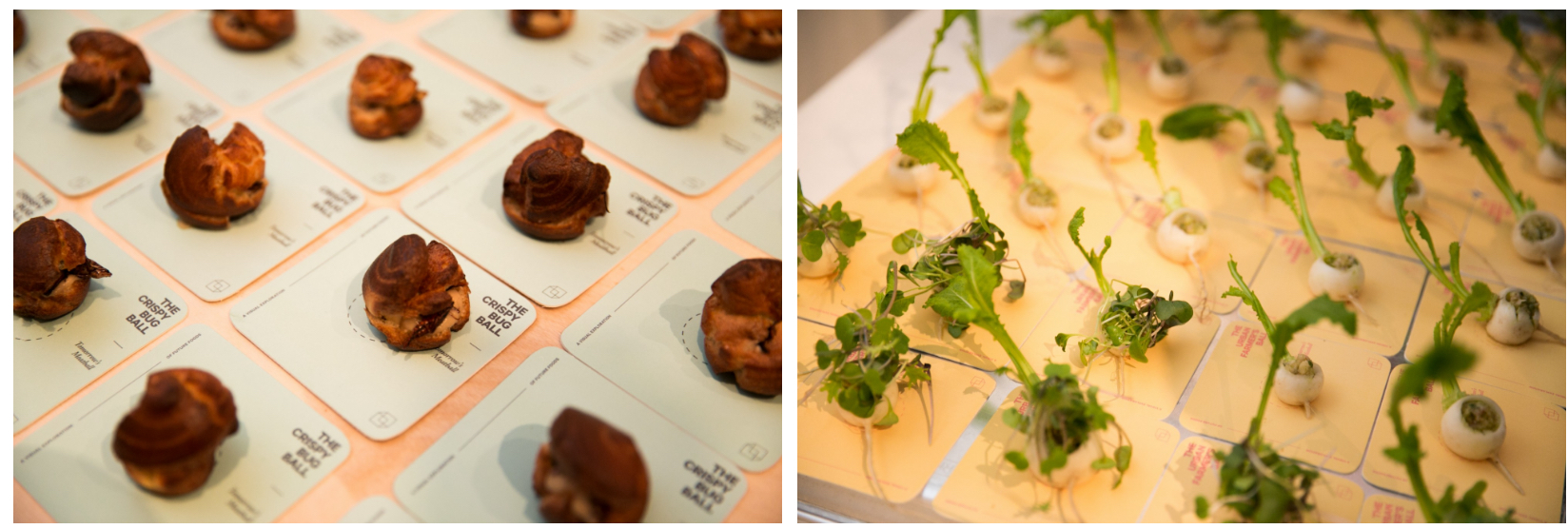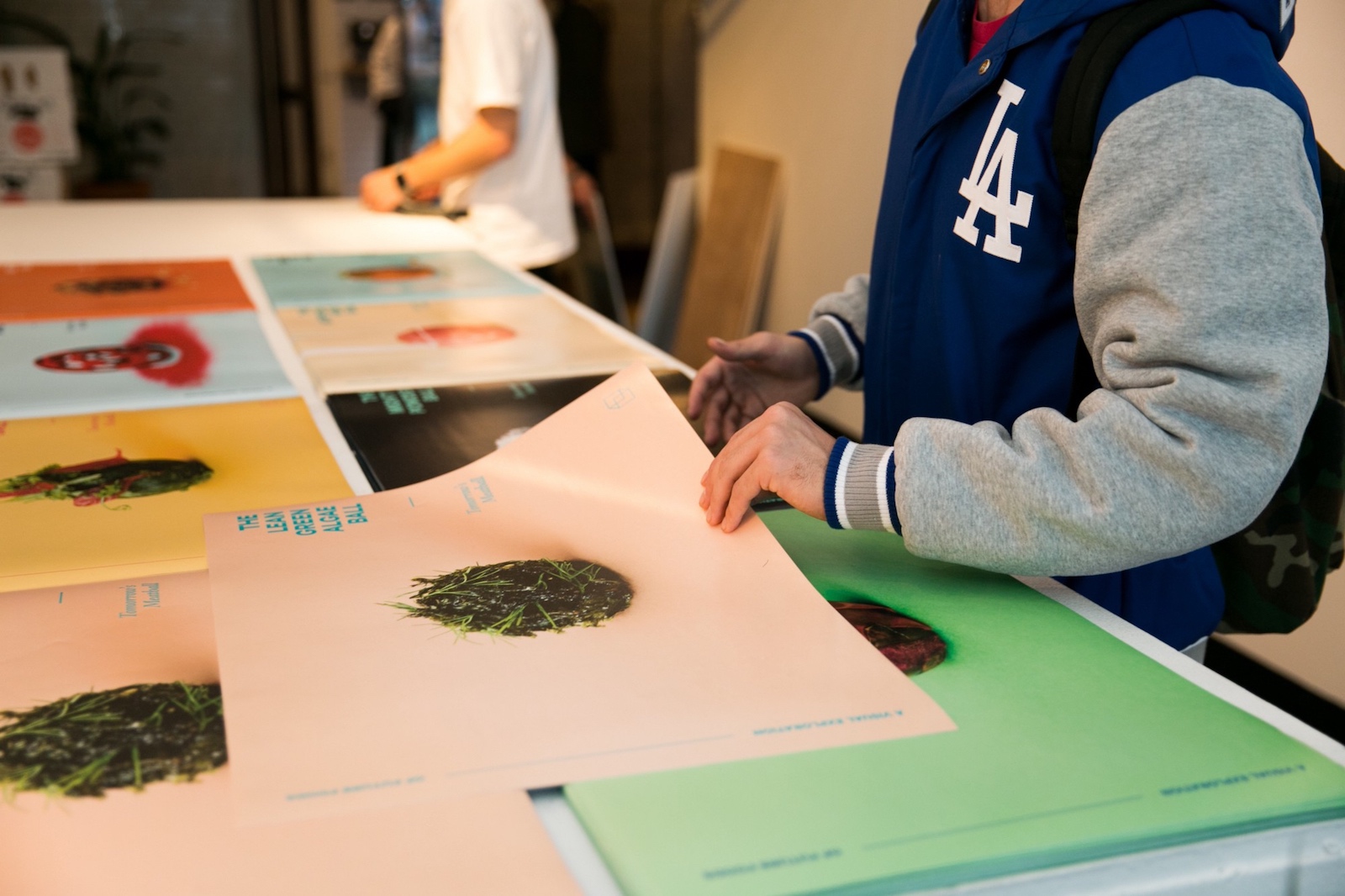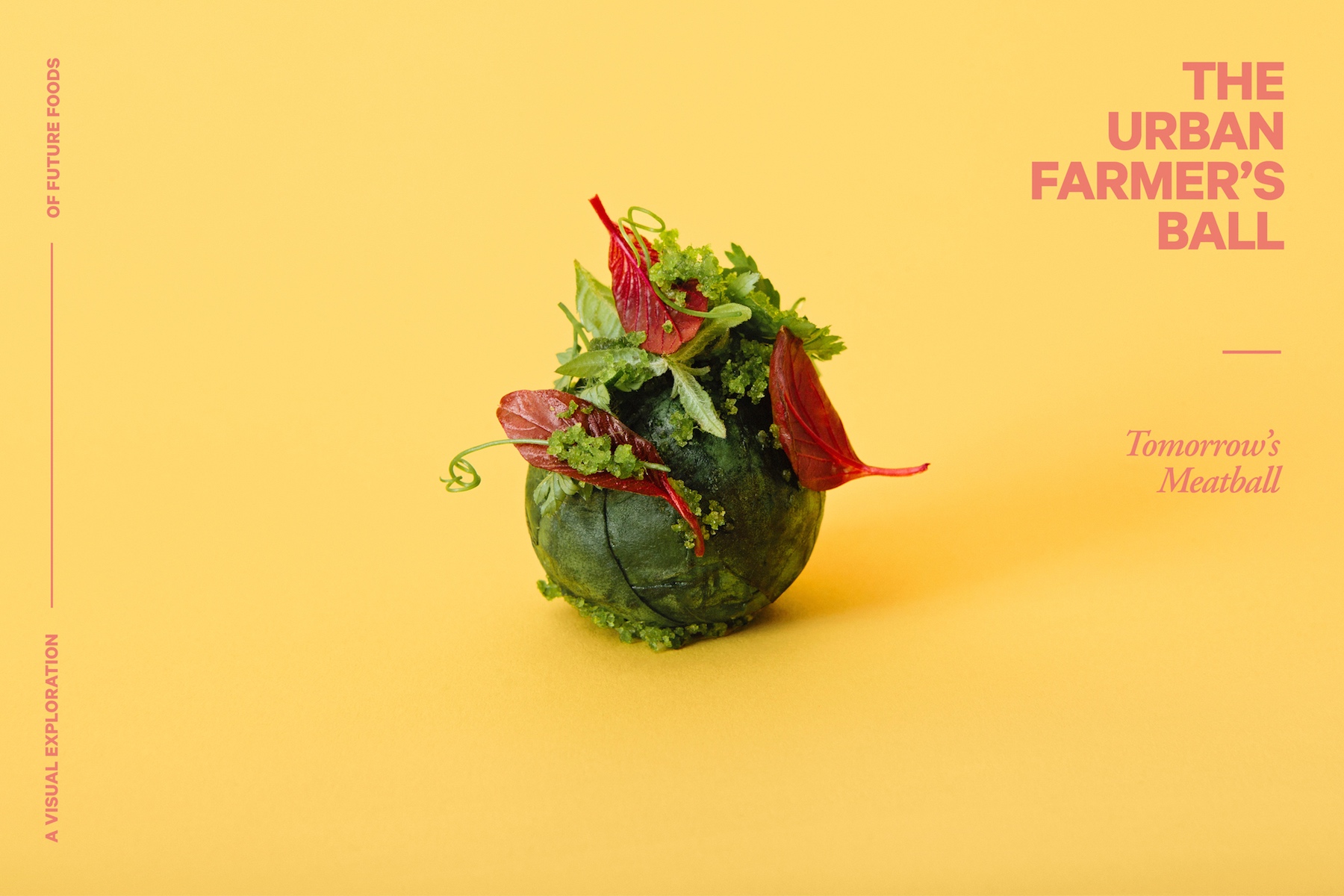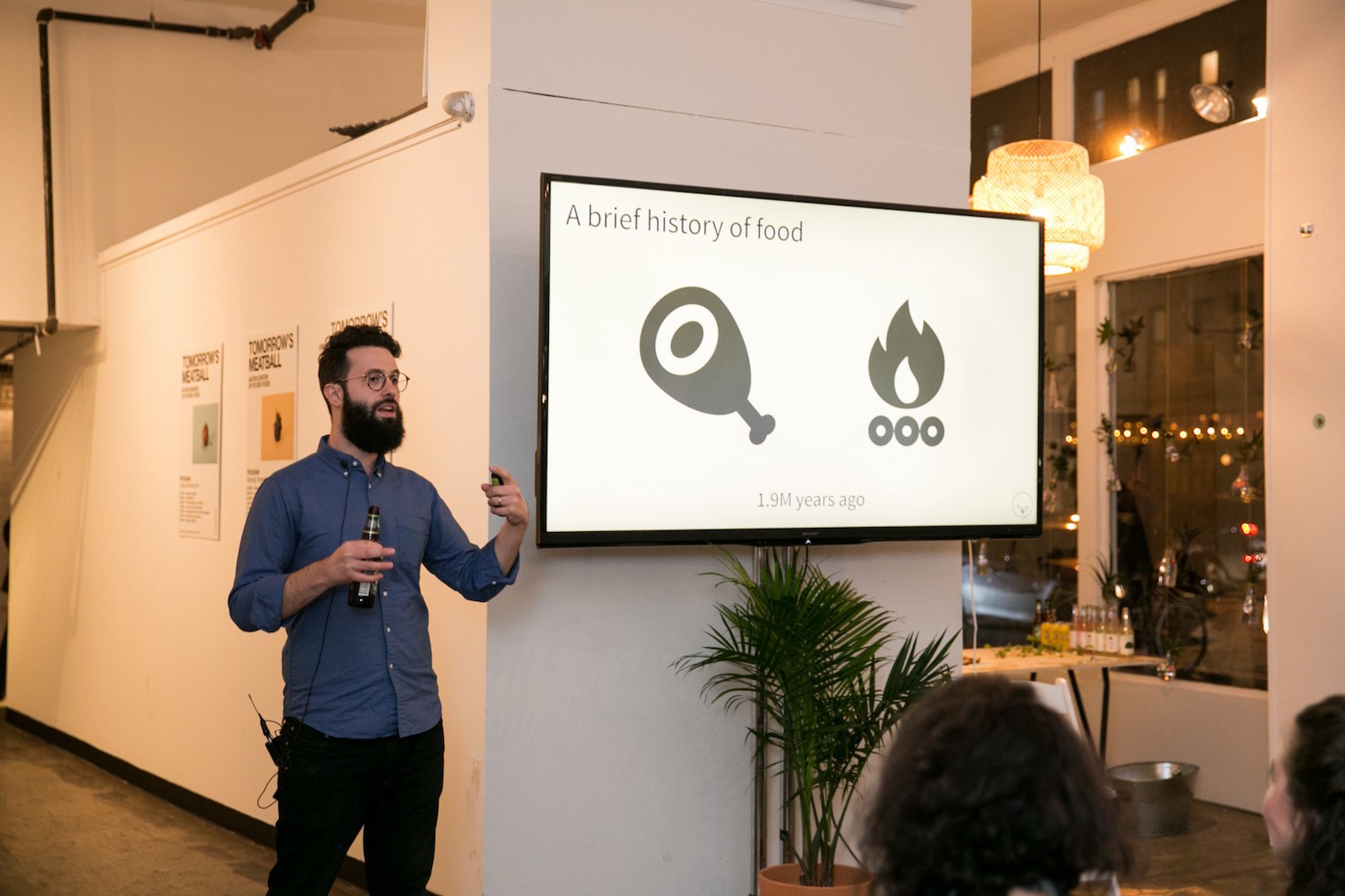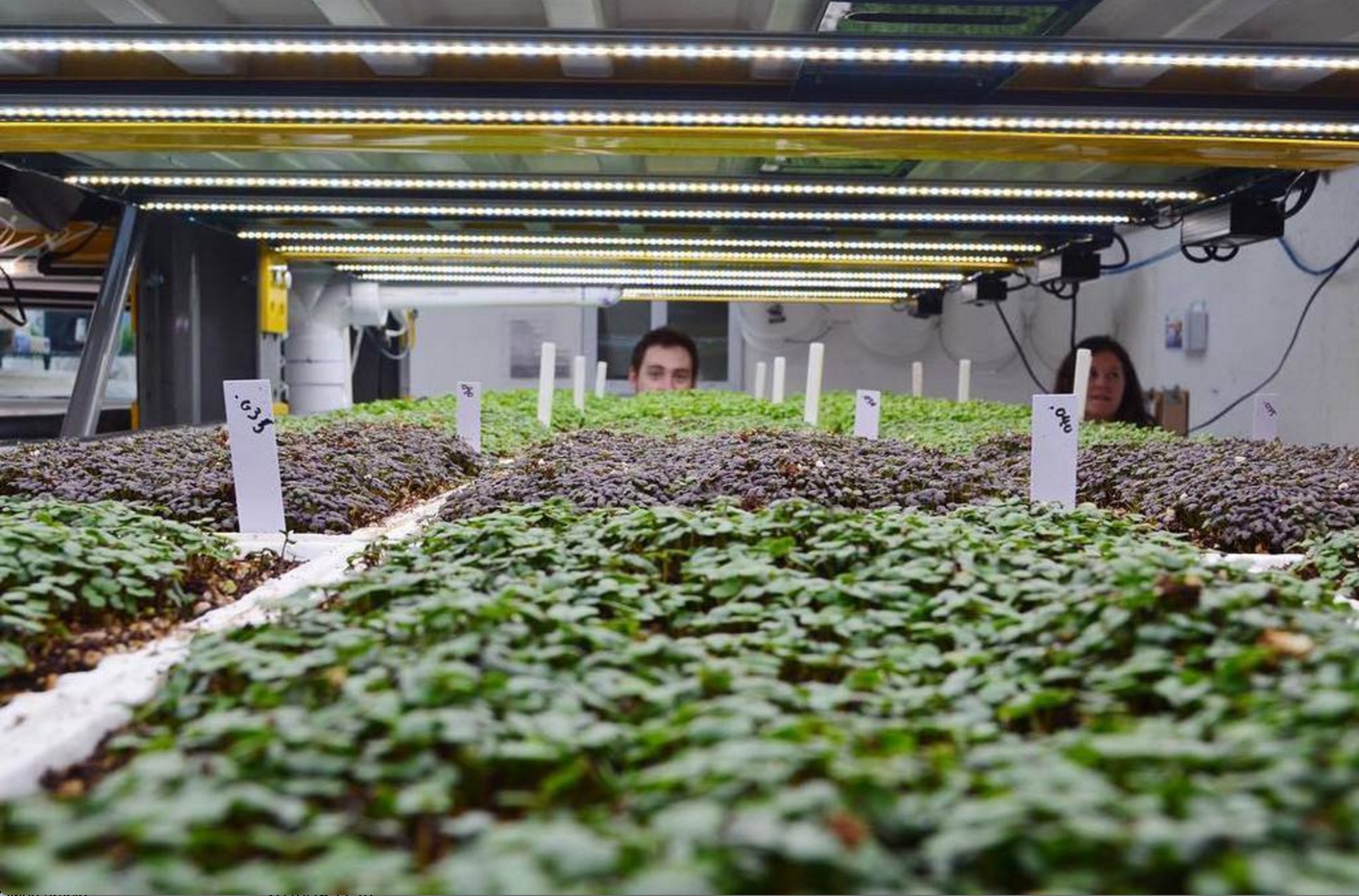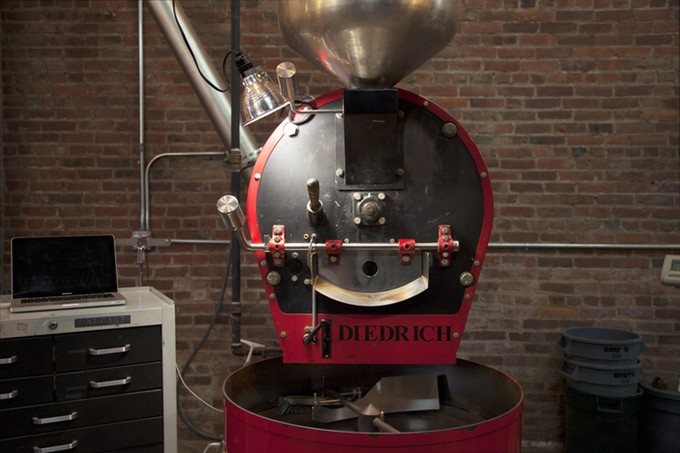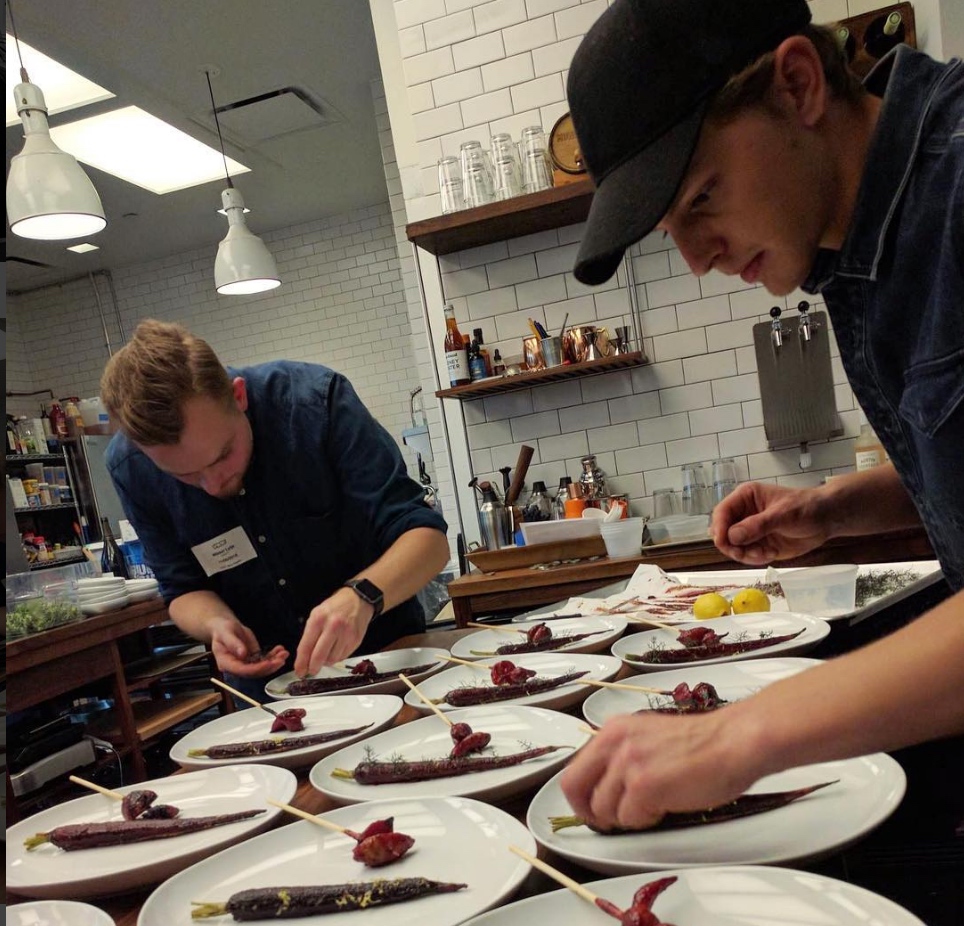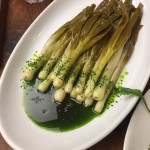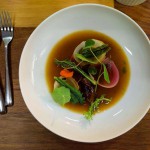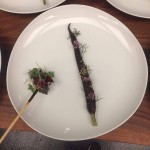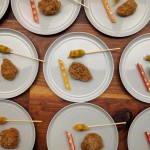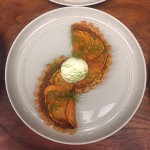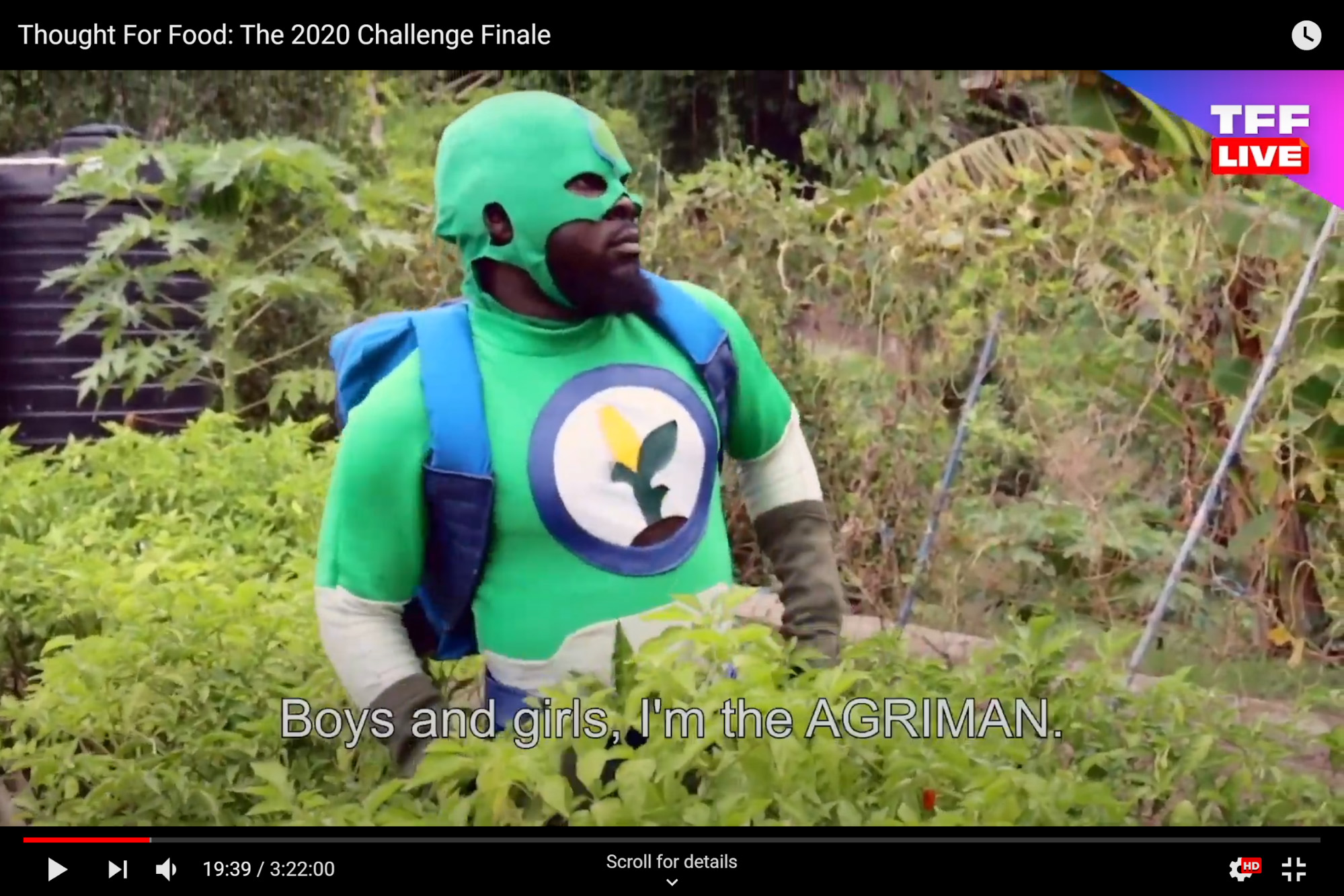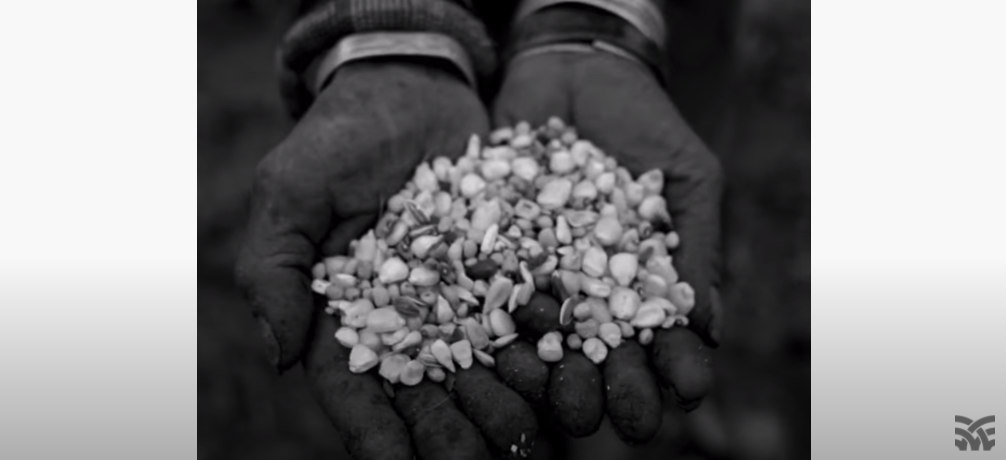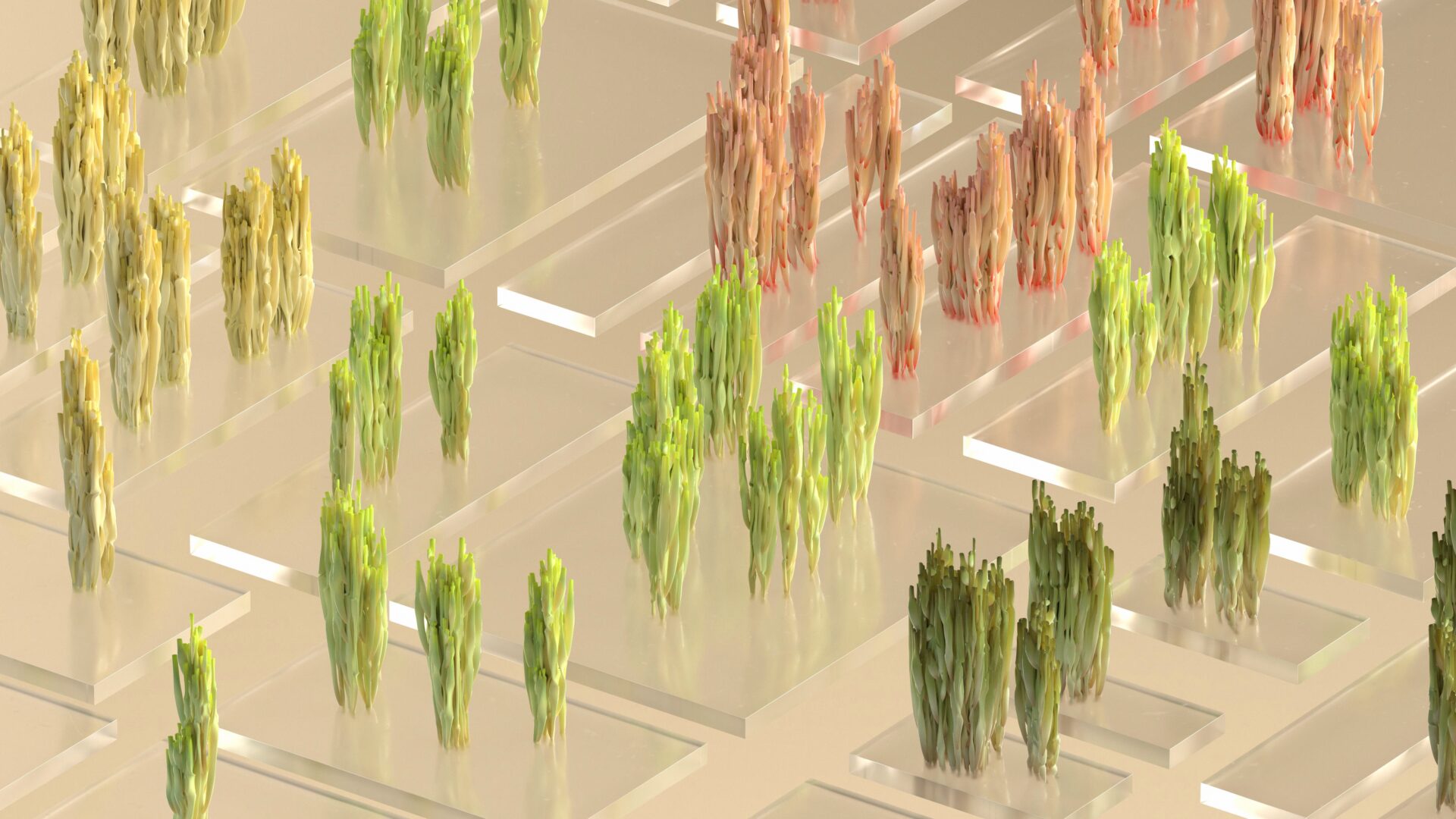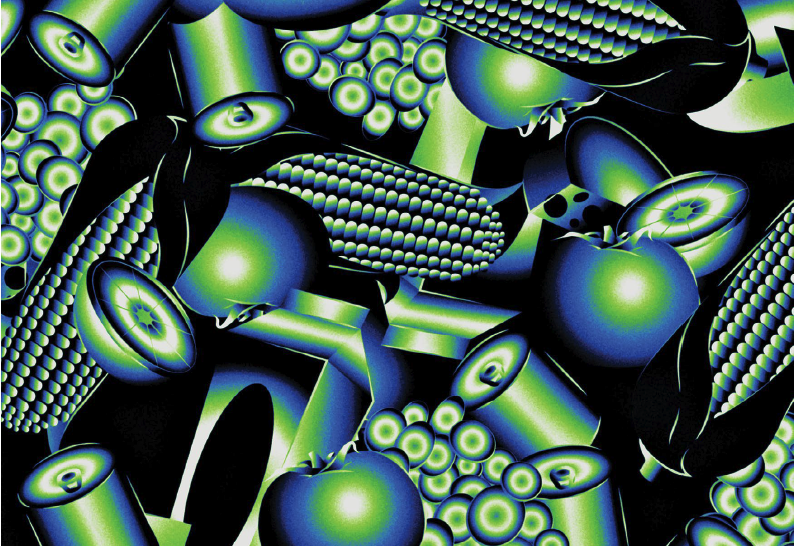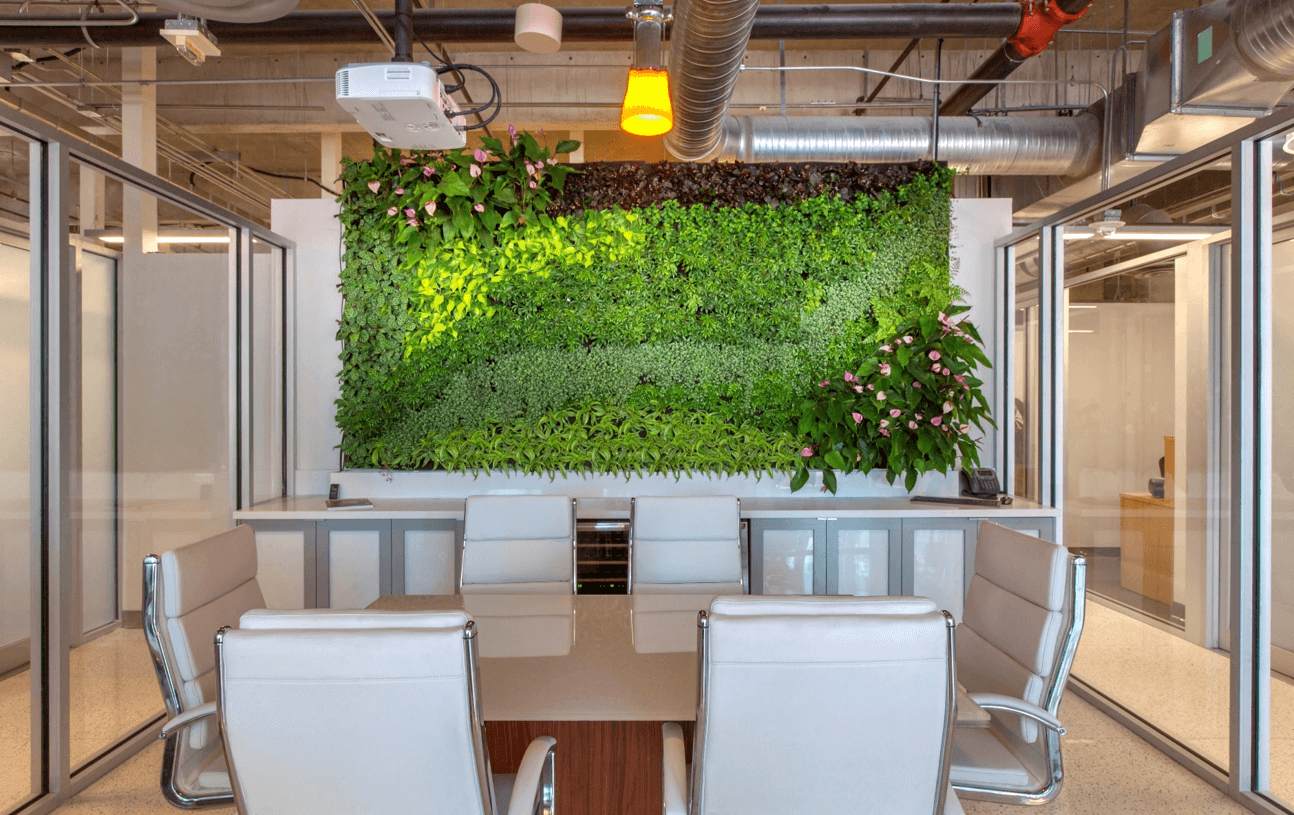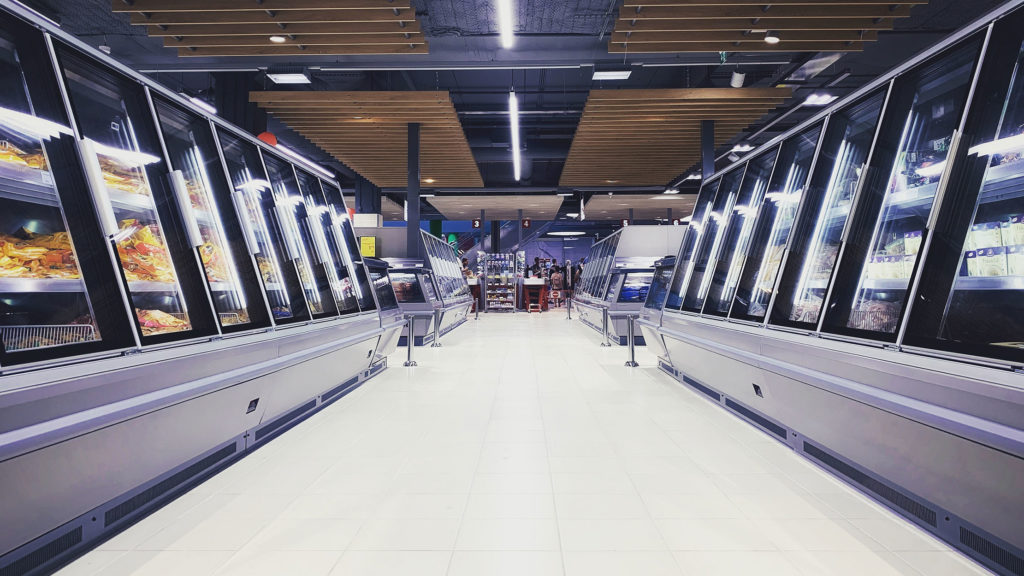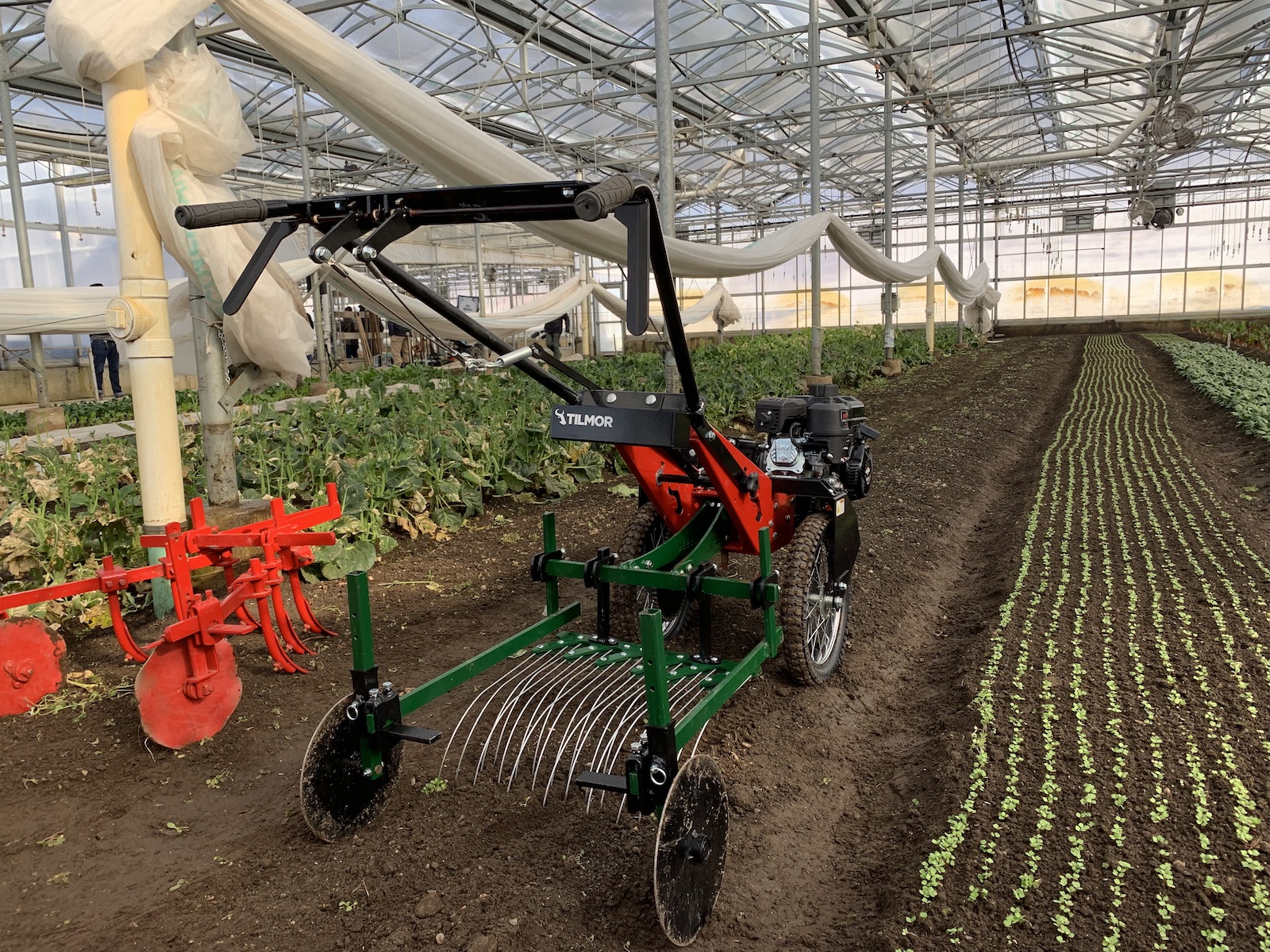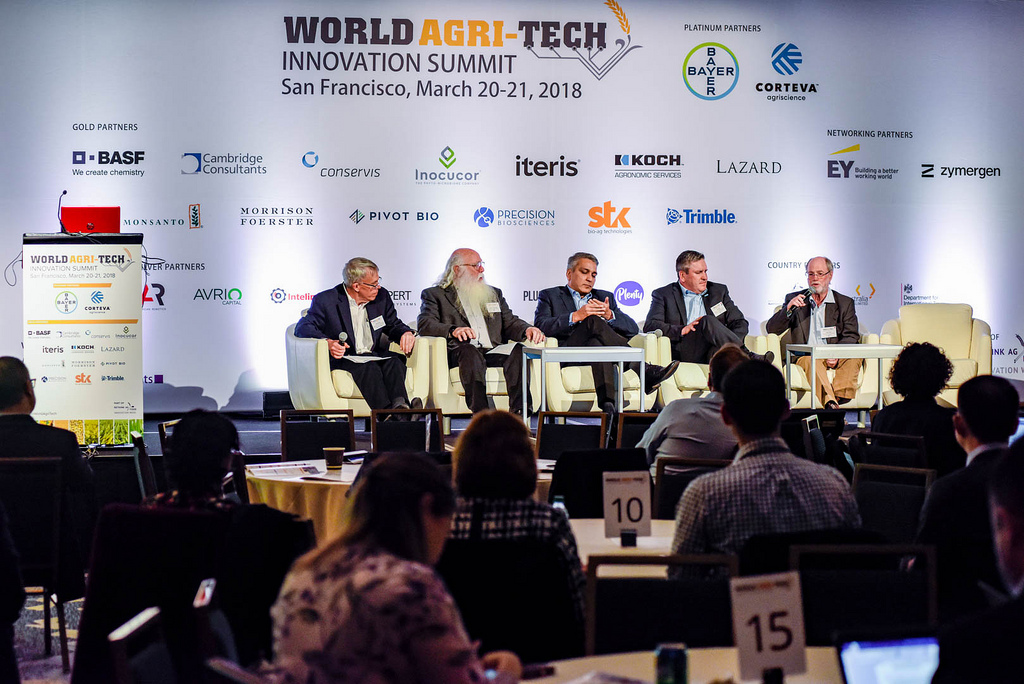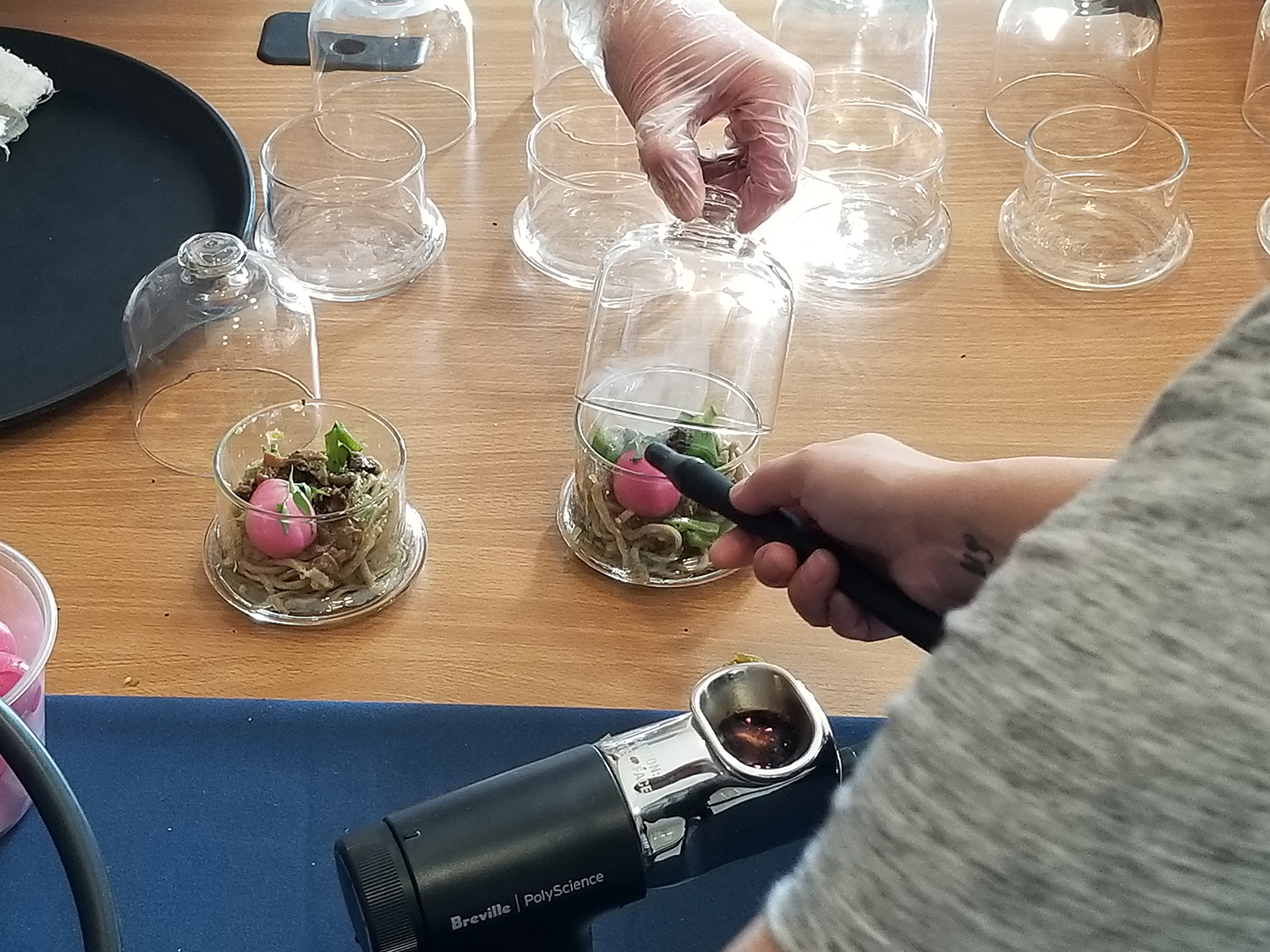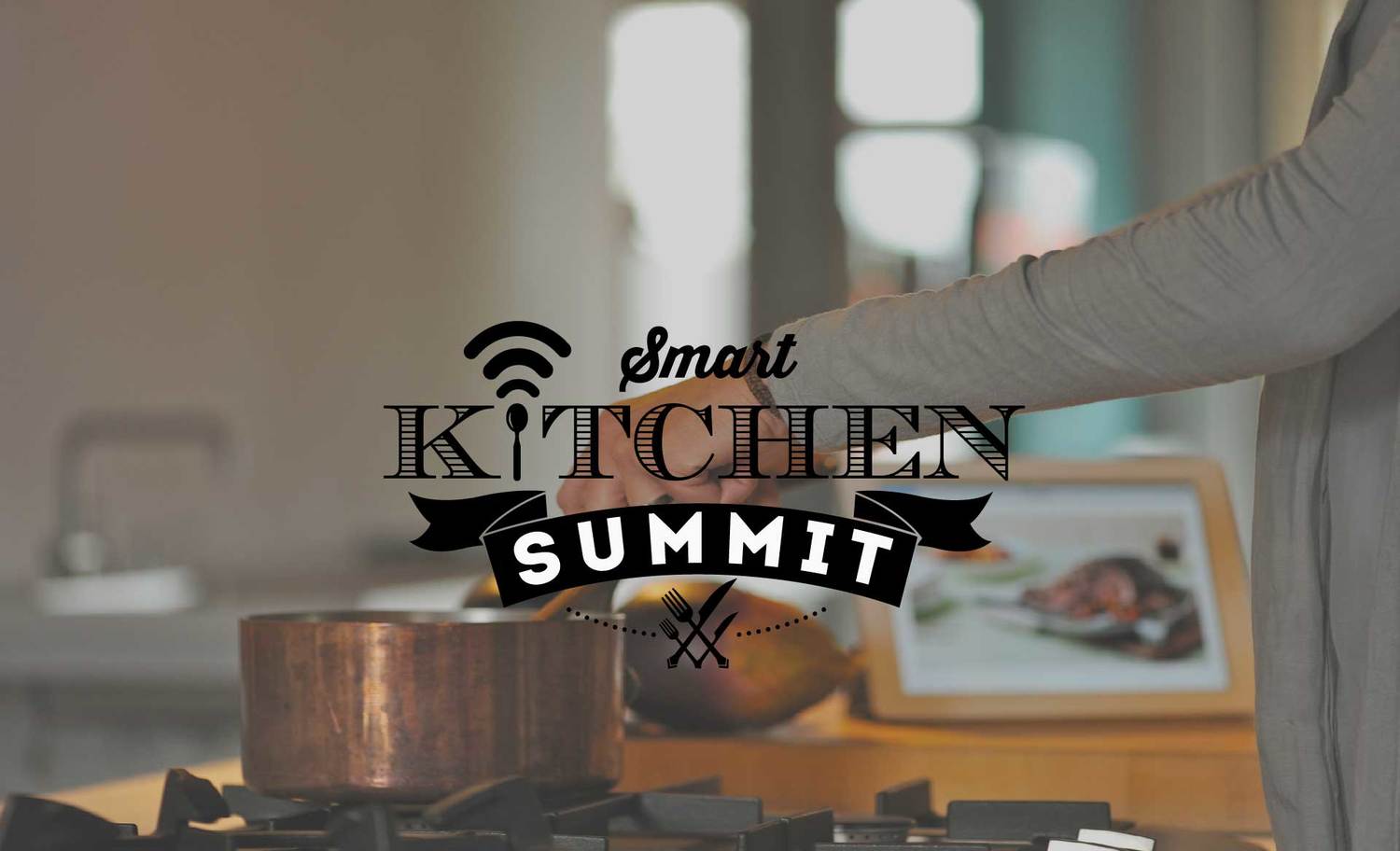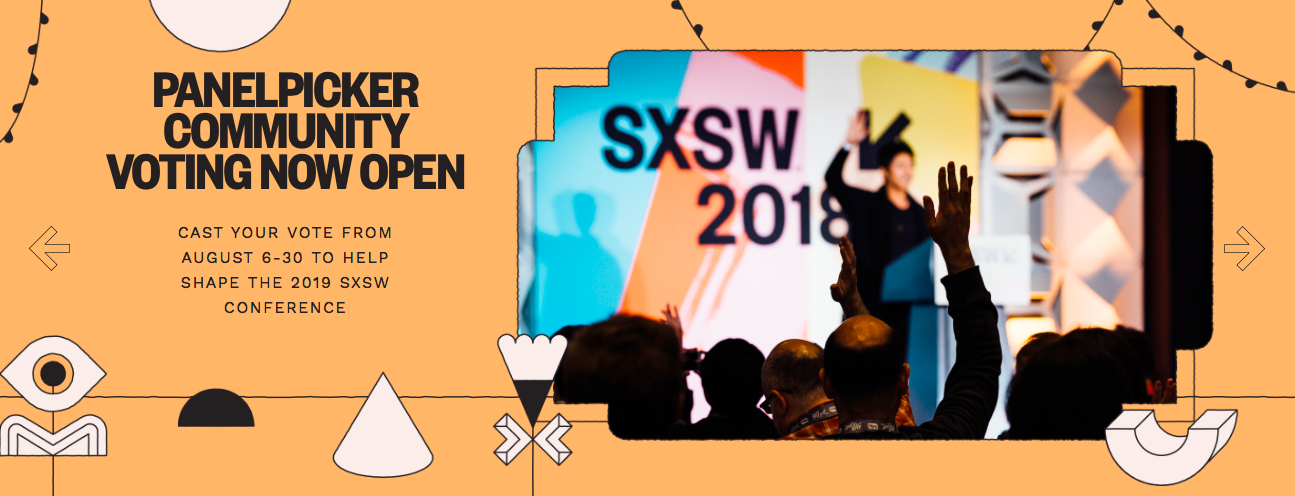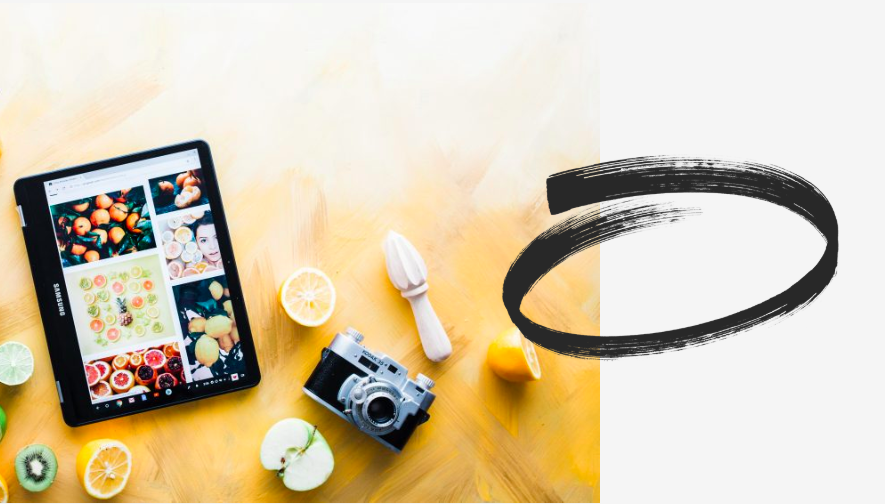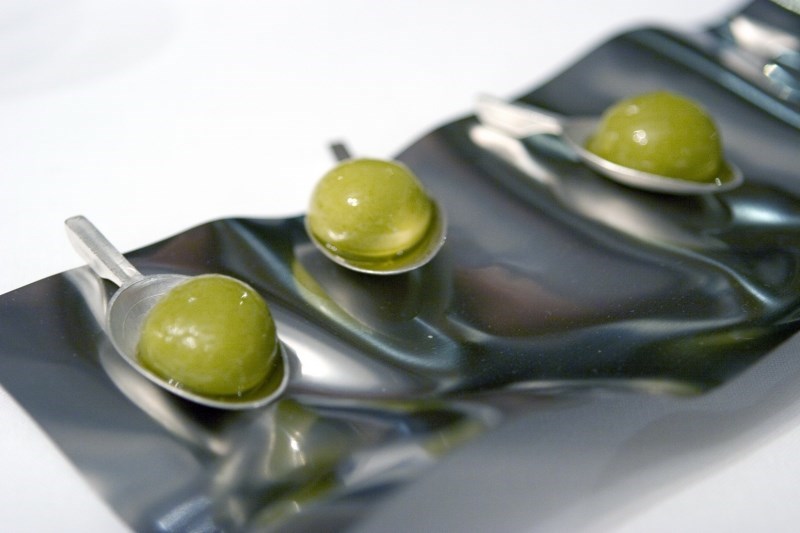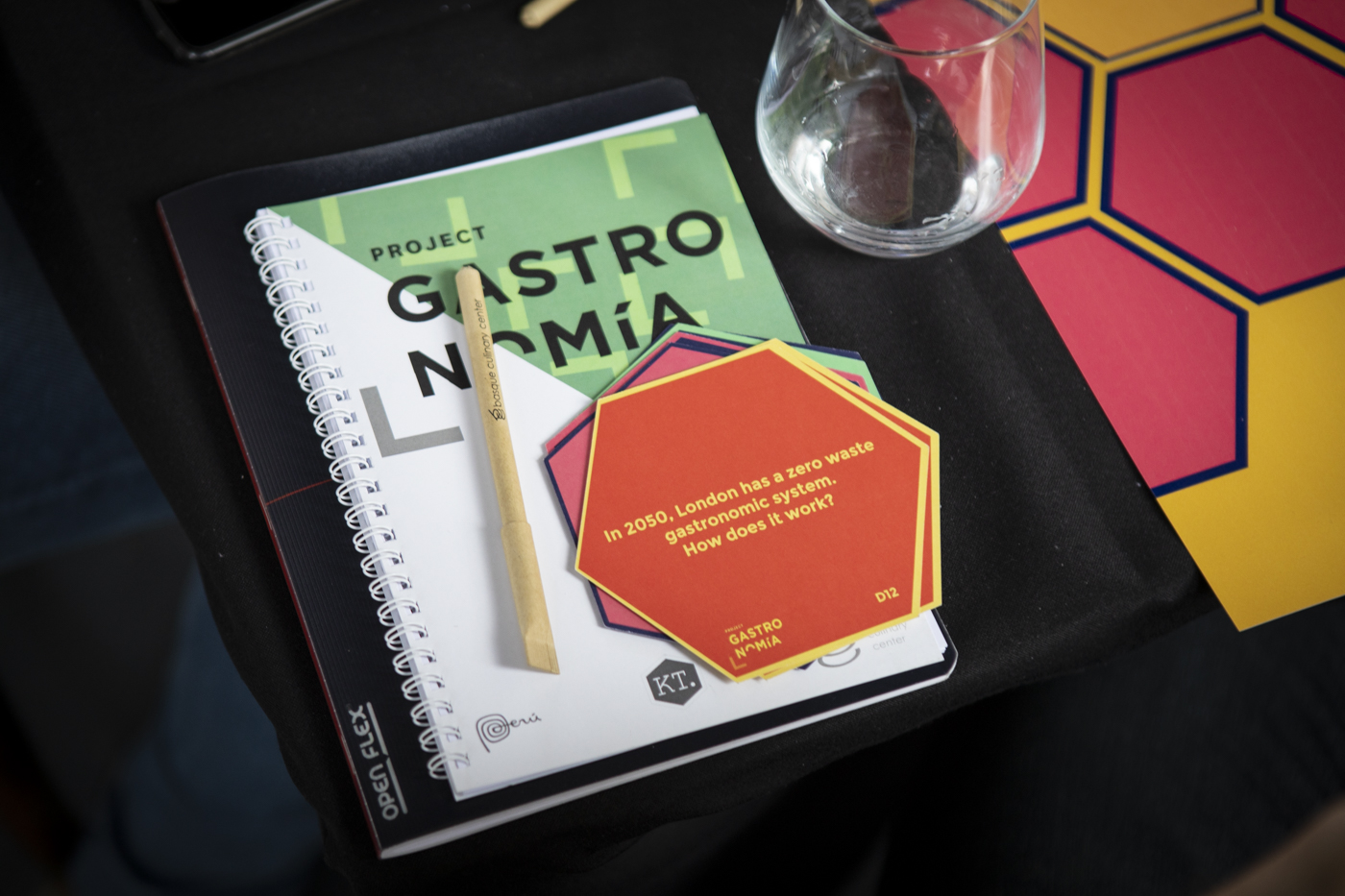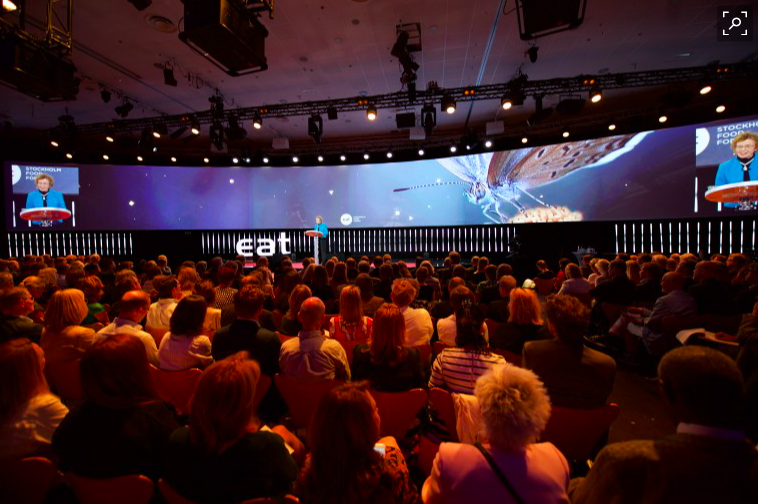SPACE10 is a future-living lab on a mission to design a better and more sustainable way of living. This story first appeared on The Farm, SPACE10’s blog.
Our playful research project Tomorrow’s Meatball—a visual exploration of future foods has been nominated by Fast Company for an Innovation by Design award.
To celebrate, and most importantly to push the conversation further, we relocated to New York on November 4-6th to set up a three-day pop-up in collaboration with MUNCHIES and Weird Heroes. We wanted to celebrate the people who are actually moving the needle in exploring more sustainable food options for all of us.
Curious souls and foodies gathered in our home for the weekend and were treated to intimate experiences: Chef & Food Designer Simon Perez whipped up and served the Crispy Bug Ball and Urban Farmers Ball. Documentaries BUGS, Tomorrow and MUNCHIES Food Hacking were shown on the big screen.
Posters with all eight balls adorned the walls of the venue and guests were invited to bring home their choice of a poster as a memory.
In between tastings and screenings, a handpicked selection of food front runners shared their take on how to tackle the explosive demand for more food in the future and the ways we could be eating in a much more sustainable way than today. The presentations and films were too tasty and inspiring not to be shared with you. So grab your knife and fork and dig into the highlights of the talks and films below.
JASON GREEN, CEO + Cofounder at Edenworks
Representing The Urban Farmer’s Ball
The first presenter was Jason Green from Edenworks. Edenworks is a Brooklyn-based indoor agriculture company that is pioneering a new level of freshness and nutrition by producing food locally in New York. The aquaponic vertical farming technology that they have developed enables them to grow ready-to-eat greens for grocers. In 2017 it will provide salads to Whole Foods Market stores across New York City.
KEY TAKEAWAYS:
1. When we change our diet it effects our species. When we started large-game hunting and controlling stampedes 1.9 million years ago, we began to eat and produce large amounts of meat that could be shared by many members of the group. This was new and provided much more energy than our previous plant-based diet which also changed our behaviour and our entire species. The result was our species evolved into the homoerectus or the ‘upright man’. Basically, we are what we eat.
2. Commodity-based diet. Moving forward in history to 200 years ago. Around this time we started changing our diet again because of another innovation that resulted in humans being more food secure than ever. Moving from local produce to big scale farming, we no longer had to farm ourselves to be fed. Our new commodity based diet has it advantages but are also leading to diseases such as diabetes, strokes and cancer.
3. Our food system is broken. Even fresh fruit and vegetables are actually not fresh—it’s stuffed with chemicals. If we take the journey of a normal apple for example, from the time it’s picked until the time it’s available in our grocery stores, it takes an average of 11 months. This means the apple lacks 90% of vitamins, nutrients and antioxidants, not to mention taste. It’s basically a little ball of sugar perceived as something healthy.
4. We have a huge opportunity in front of us. Jason Green and Edenworks envision a future where we start growing our food inside our cities and develop a new, local supply chain that enables us to eat fresher food than we’ve ever eaten before. This could even open up new categories of delicate produce such as like microgreens to the mass market. Until recently, these super delicious and nutritious products have been blocked by the conventional supply chain that is built for long haul transportation, rather than optimized for freshness, nutrients and taste.
5. To build that new supply chain, we need a new kind of infrastructure. Local, ecological farms designed with industrial scale and efficiency. Edenworks is setting the example with their automated aquaponic farm. It creates the perfect spring day everyday, allowing greens to grow 3–4 times faster, completely organic without chemicals, and gives full nutritional value of the produce.
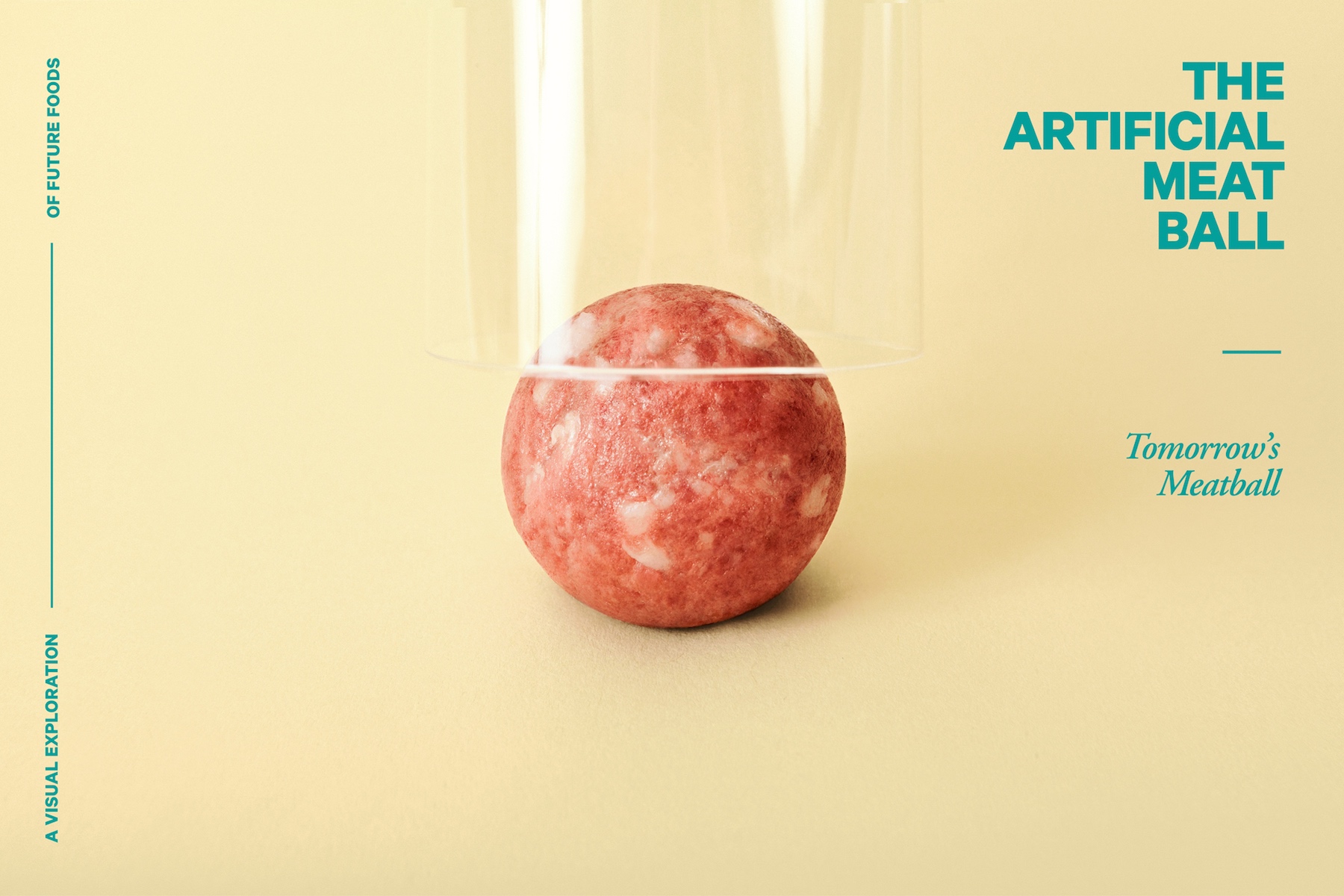
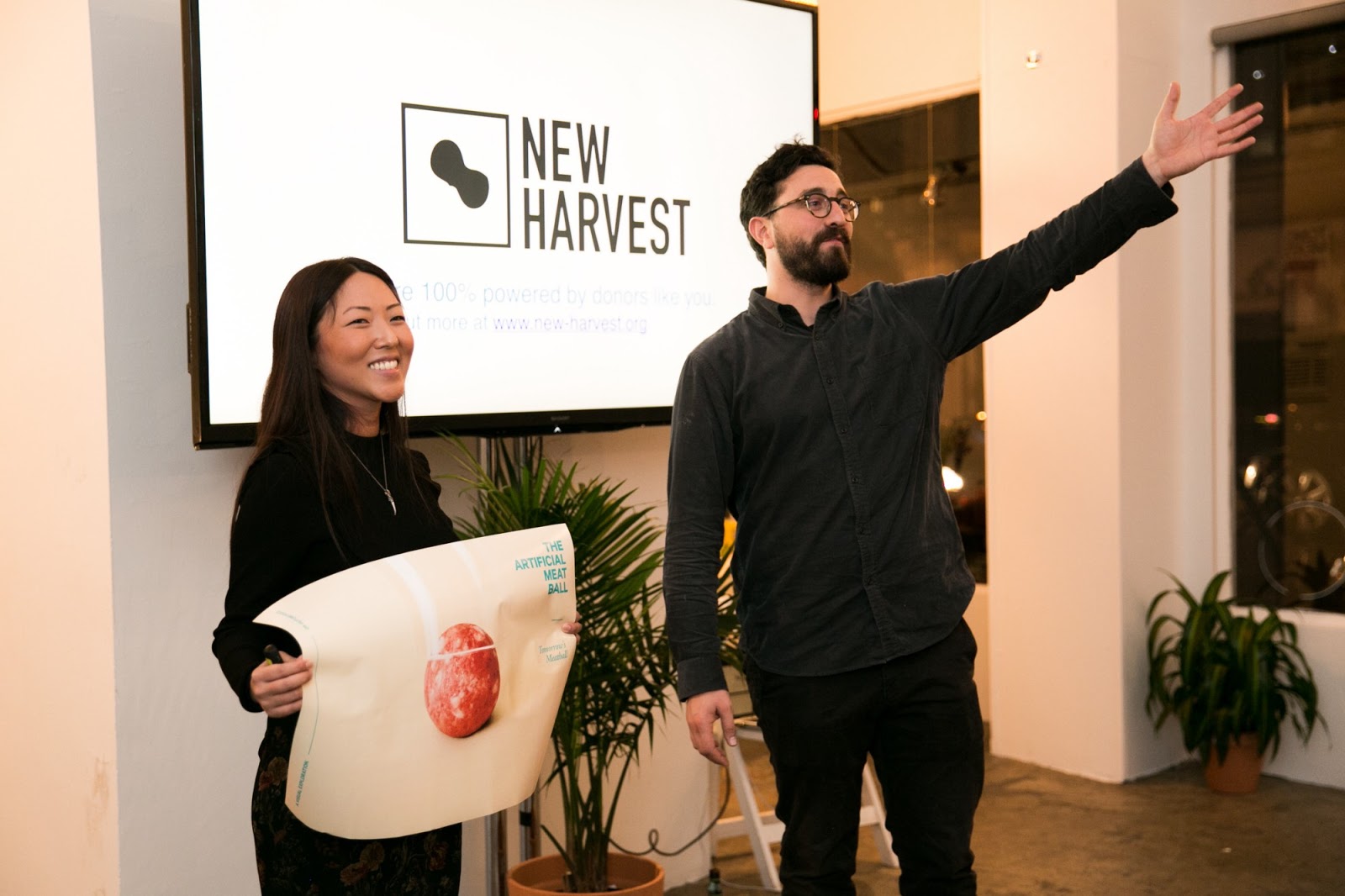
ERIN KIM, Communications Director at New Harvest
Representing The Artificial Meat Ball
New Harvest is spearheading the next agricultural revolution: cellular agriculture, which allow us to make milk without cows, eggs without hens and beef without cows. Our increasing hunger for cheap animal products is having significant impacts on the environment, climate change, water use, antibiotic resistance and food safety. Industrial farming takes part in the depletion of water resources and widely contributes to global warming. Livestock farming, single-handedly, is responsible for 18% of the greenhouse gas emission. Each year, 65 billion of animals are bred in insufferable conditions just to be killed afterwards. To feed them, millions of forest acres are cut down to grow soya and corn, thus exhausting and polluting the soil. Post-animal bioeconomy could potentially offer a solution to many of the immense problems associated with the food system that exists today. New Harvest bring together talents, resources and collaborative environments to turn this possibility into reality.
KEY TAKEAWAYS:
1. Post-animal Harvest. To feed a growing global population in a more ethical, sustainable, affordable, stable and safe way than today, New Harvest envision a world where we harvest animal products from cell cultures, not animals.
2. Cellular agriculture is a proven technology that at this point in time requires further research in order to be implemented on a large commercial scale. The research institute funded the first lab-grown beef burger that was presented in 2013 at the cost of $325,000. Today, that very same burger costs only $10.
3. Culinary Horizons. Harvesting animal food products from the cell level up, rather than raising millions of animals and breaking them down into their various constituent parts as we do now, may also have the benefit of opening up exciting new culinary possibilities that are yet unimaginable to us.
BUGS by Andreas Johnsen
Representing The Crispy Bug Ball
Eating insects is a hot topic these days. Ever since the UN recommended edible insects as a resource to combat world hunger, they have been heralded for their taste by cooks and gastronomes and for their low ecological impact by environmentalists, plus for their nutritional content by public health scientists. It would seem that insects are the new superfood that will fix all our problems of global food security. Still, many of us find it disgusting.
During the pop up we showed Bugs on the big screen. The documentary follows a team from the Copenhagen-based Nordic Food Lab: chefs and researchers Josh Evans, Ben Reade and Roberto Flore. We get up close with the trio as they forage, farm, cook and taste insects within communities in Europe, Australia, Mexico, Kenya, Japan and beyond. Simply to learn what some of the two billion people who already eat insects have to say.
We can’t give you the key take aways—you have to experience this film for yourself.
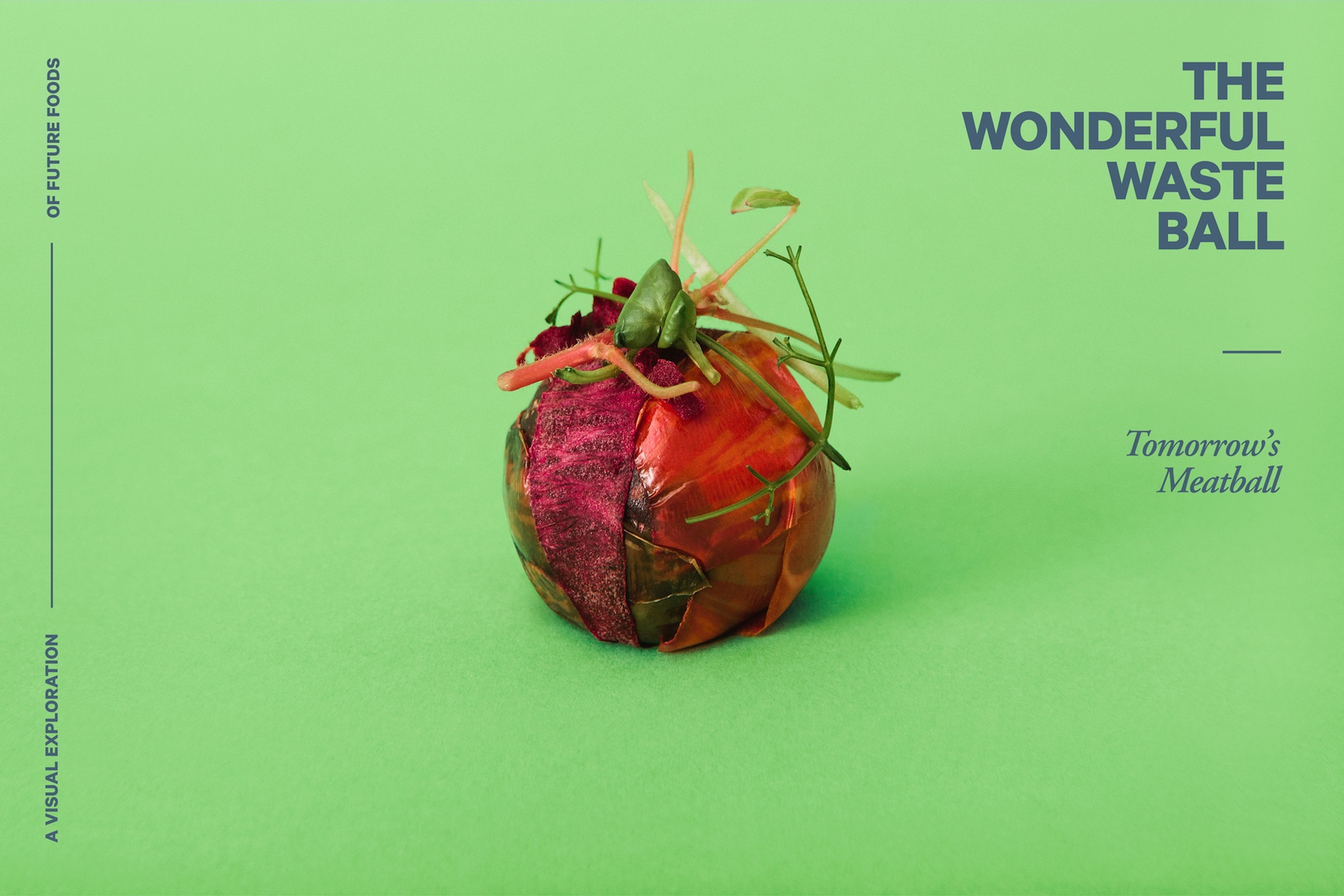
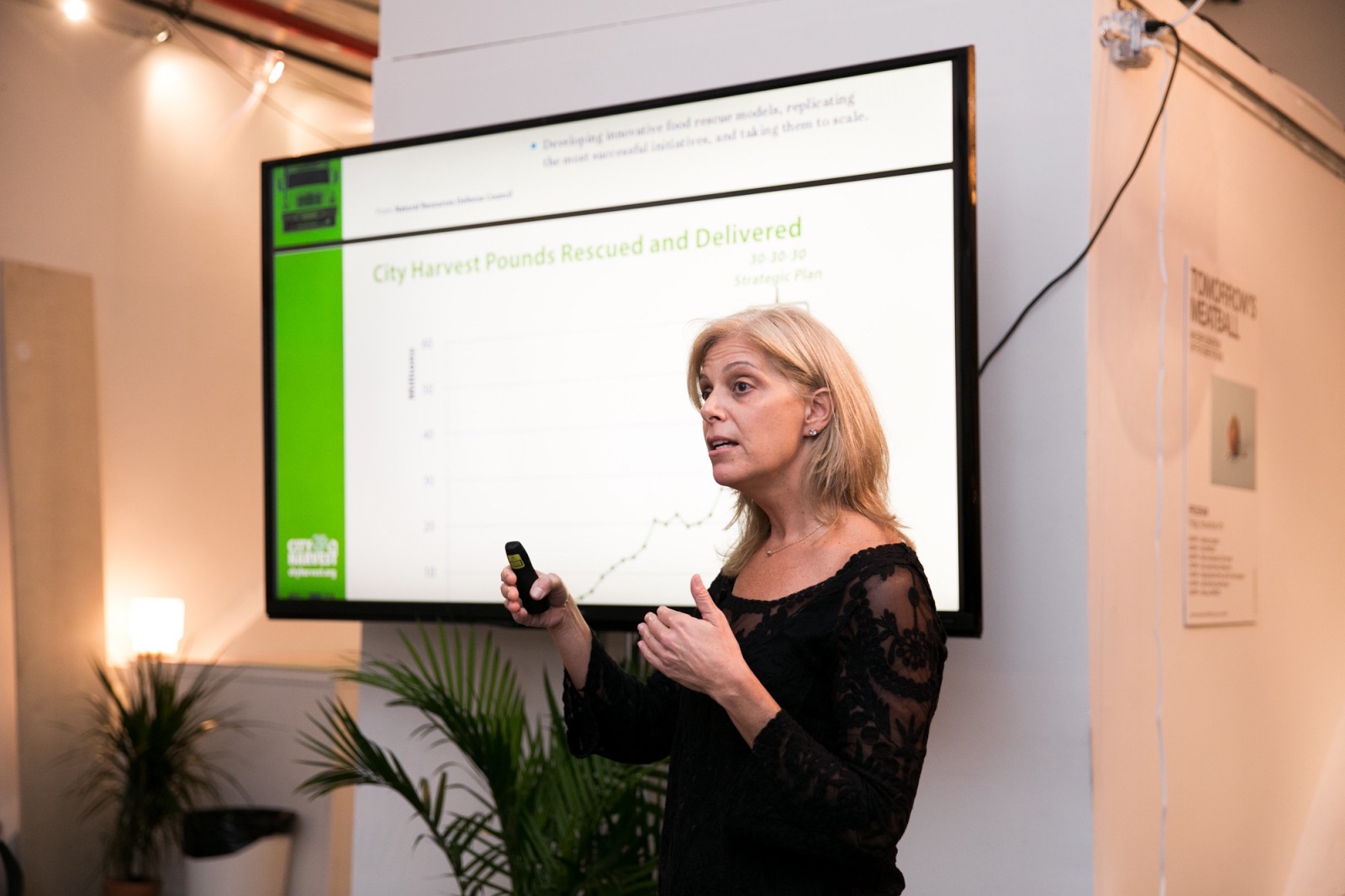
LISA SPOSATO, Director of Food Sourcing for City Harvest
Representing The Wonderful Waste Ball
City Harvest pioneered food rescue in 1982 and in 2016 they will collect 55 million pounds of excess food to help feed the nearly 1.4 million New Yorkers struggling to put meals on their tables. Food waste or food loss is food that is discarded or left uneaten caused by numerous factors at all stages of the food supply chain or value chain. From production, processing, retailing and consumption.
KEY TAKEAWAYS:
1. Creating an Infrastructure. Current estimates put global food loss and waste between one-third and one-half of all food produced. The UN foresees that we need 70% more food within the next 35 years. But instead of producing more food, we could start with consuming the food we have already produced. Lisa Sposato explained how City Harvest is setting the example of how we can create the infrastructure for such a system.
2. Delivering to the Hungry. Through relationships with farms, grocers, restaurants and manufacturers, City Harvest collects nutritious food that would otherwise go to waste and delivers it free of charge to 500 soup kitchens, food pantries and other community food programs across the five boroughs in New York City.
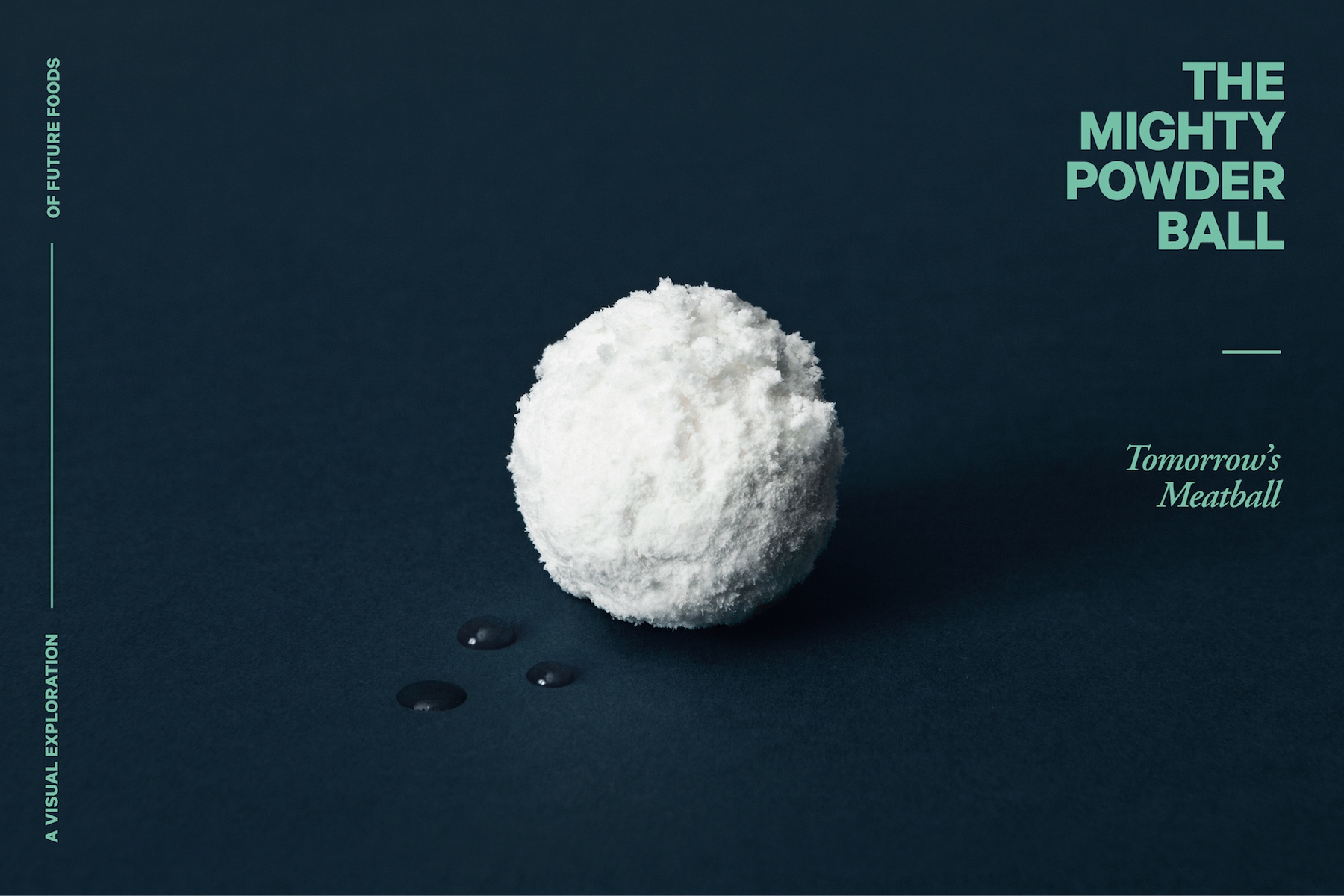
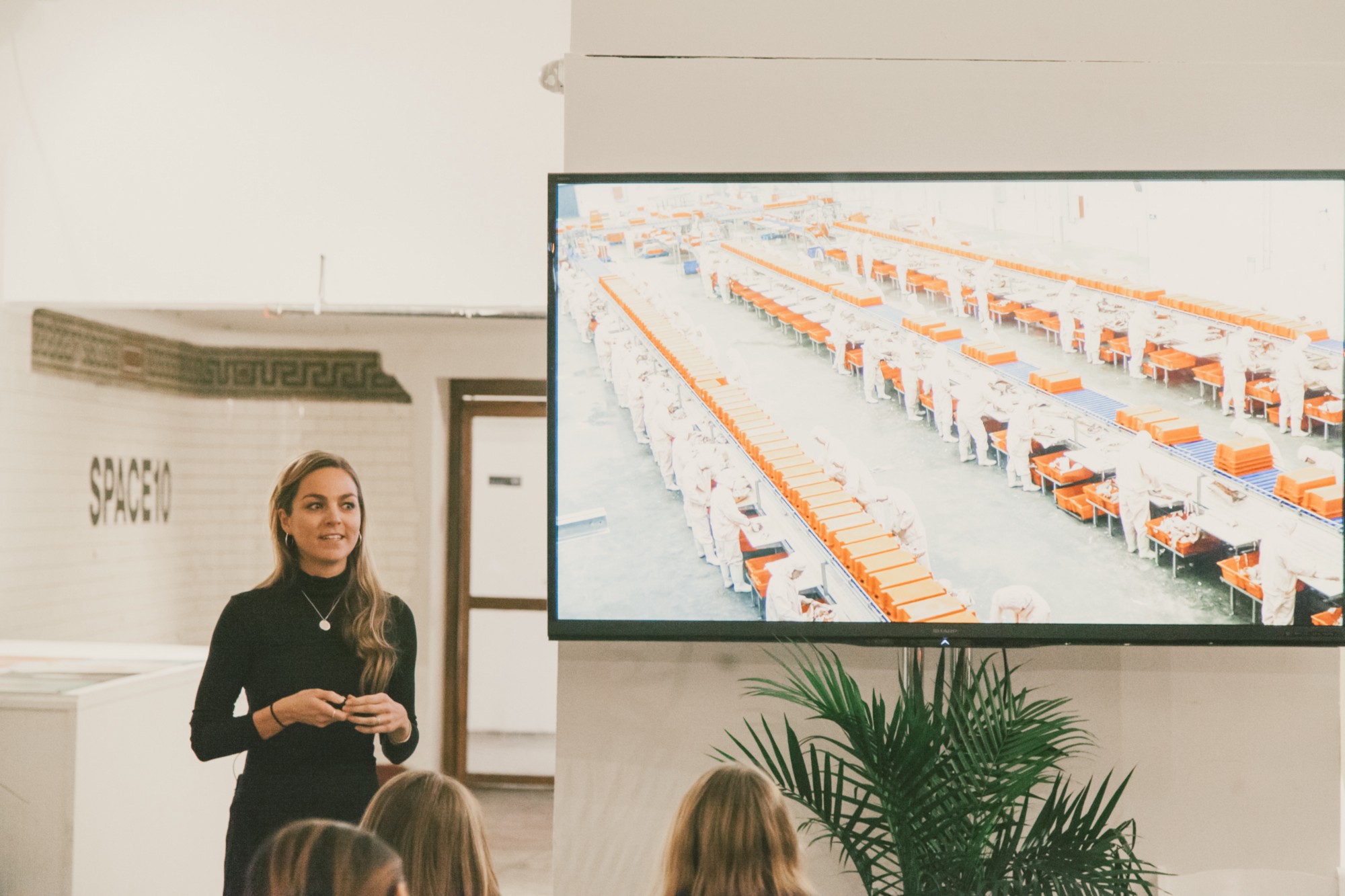
CHRISTINA KIRK, CEO at Onemeal
Representing The Mighty Powder Ball
Onemeal is a tasty powdered based meal developed by Michelin chefs and nutrition experts—a great in-between meal and a strong response to future food shortage. We can’t deny it, the world is facing food shortages in the near future and we expect price spikes on food due to climate change. This will hit some of the world’s poorest nations hardest. With the earth’s growing population, it will be increasingly difficult to feed everyone—particularly challenging will be getting the right nutrition with a high content of protein. Onemeal tackles the challenge with a delicious powder-based product that is healthy, nutritious and tasty, plus organic, sustainable and environmentally friendly.
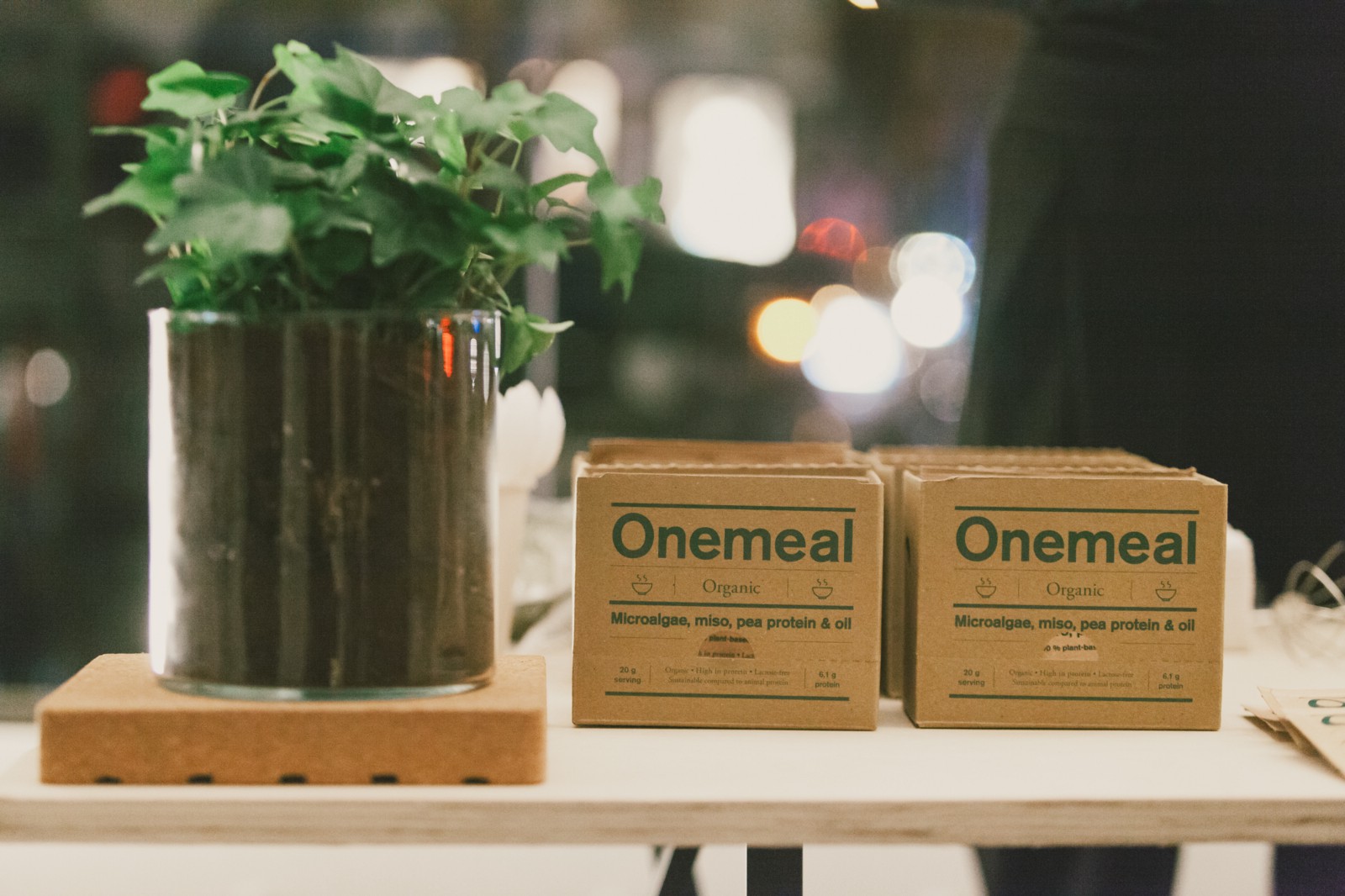 Photos of Onemeal and Algama (below) sessions by Julian Tell
Photos of Onemeal and Algama (below) sessions by Julian Tell
KEY TAKEAWAYS:
1. Microalgae. Onemeal uses tiny microalgae— perhaps the most complete source of nutrition. Insights has it that chlorella and spirulina, are a good source of macronutrients such as protein and essential omega-3 fatty acids. They contain more beta-carotene than carrots, more iron than spinach, more calcium than milk, more chlorophyll than green leaves. It’s high in protein and low in carbs, which makes it an easy way to eat healthy on the go during a busy day, or supply people in areas with food shortages with powdered superfood.
2. Tasty Greens. Microalgae forgot all about tasting good, so Onemeal gave themselves one simple challenge: How do we turn this superfood into a well-tasting meal. One that preserves all the fabulous qualities of the algae, makes it convenient to eat and taste good too?
3. Sustainable Farming Practices. Onemeal is organic and grown without pesticides that are harmful to producer, consumer and environment. It’s meat-free which puts less pressure on the world’s water reserves and lowers the emissions of CO2, methane and ammonia.
4. Customization. With the possibility of customising Onemeal to different circumstances, it is also very adaptable. That means you can increase the amount of calories in places where hunger and starvation is present and decrease it in areas where obesity poses a threat to the general level of health.
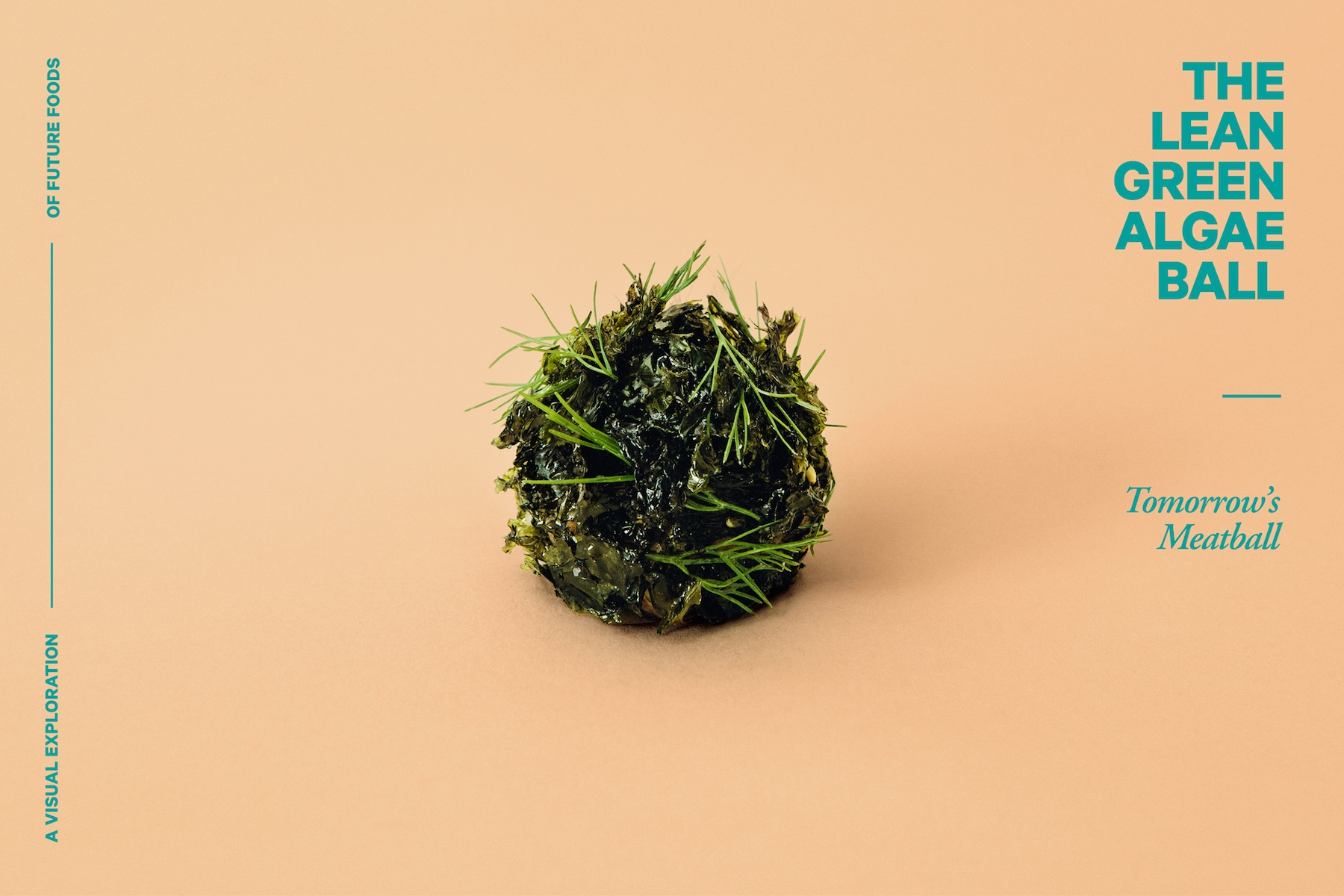
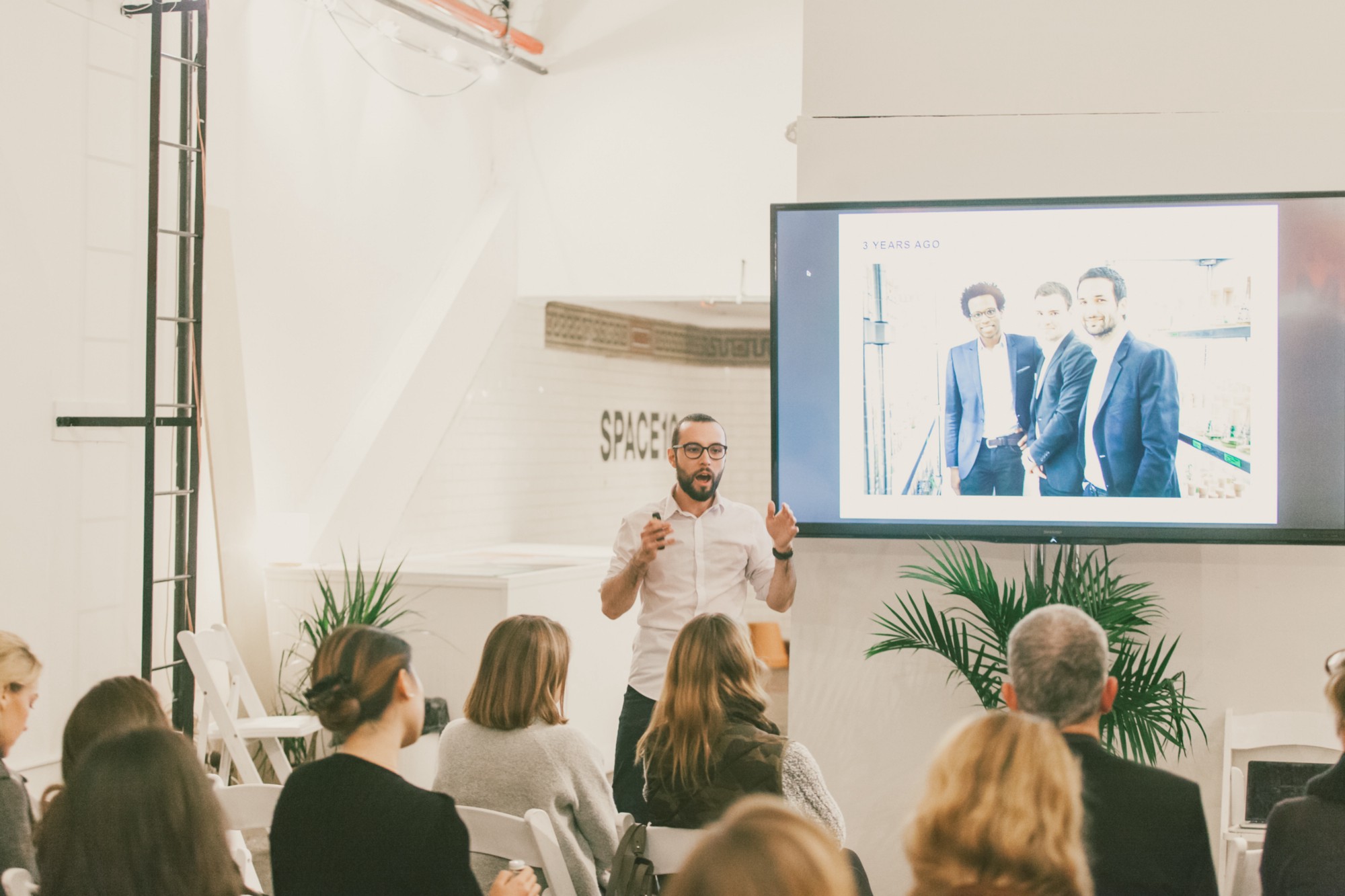
SEBASTIAN FRIN, ALGAMA
Representing The Lean Green Algae Ball
ALGAMA, a young French foodtech company, is developing innovative, healthy and sustainable food products that harnesses the unique potential of microalgae. Microalgaes are super rich in protein, vitamins and essential minerals. It ought to be the world’s favourite superfood. ALGAMA’s core work is to identify and select microalgae with unique attributes to create ingredients that can be used to develop consumer products.
KEY TAKEAWAYS:
1. Feed the World. ALGAMA is committed to meeting the greatest challenge of the years to come: feeding a world population of over 9.5 billion while conserving the planet’s ecosystems. Current resources and production methods are unable to offer a long-term solution to rapidly growing demand. Microalgae now represent a viable and sustainable alternative.
2. Pleasure Principle. Developed in conjunction with food professionals, ALGAMA’s food products combine innovation and pleasure to meet the need for alternative food and better health for all. A solution with huge potential.
3. Star Greens. When it comes to food and nutrition, spirulina and chlorella are the ‘stars’ because of their exceptional nutritional properties. These microalgae are likely to play a key role in global food supply, thanks to their unique protein content and the low environmental impact of the production process.
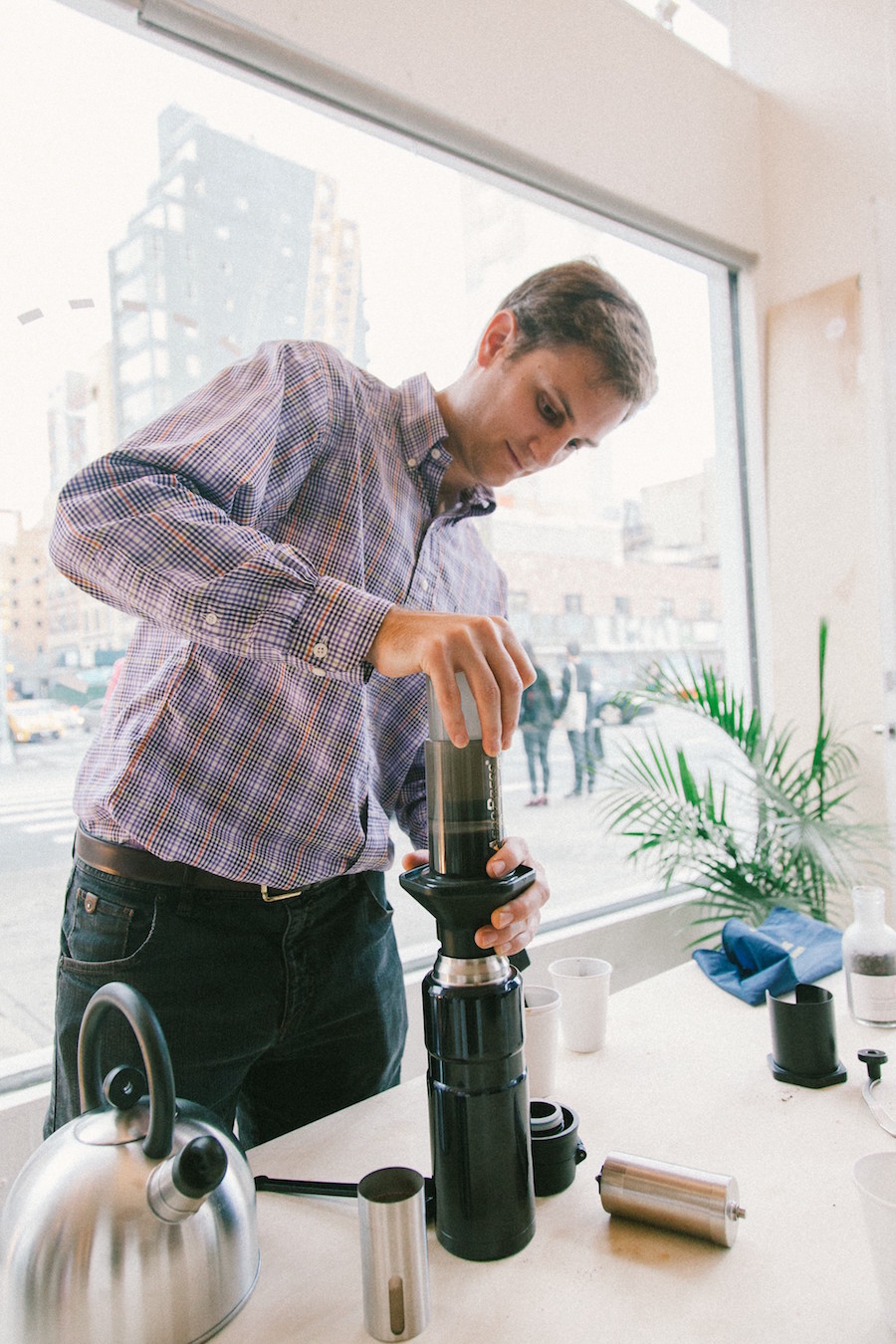
ERIC DEFEO, MBA, Director of Business Development at Afineur
Representing The Lean Green Algae Ball
Afineur is a biotechnology company pioneering the use of controlled natural fermentations to enhance plant-based food. Their first product, Cultured Coffee, is pioneering natural and controlled secondary fermentation process to make it more digestible and take its flavor to the next level.
KEY TAKEAWAYS:
1. Fermentation. Afineur unlocks the hidden potential of plant-based food by revitalising the ancient technology of fermentation. Fermentation is one of the oldest techniques that has enabled staples like cheese, yogurt and beer.
2. Nutritional Profiles + Taste. They want to take food to the next level by working with natural microorganisms to enhance the flavor and nutritional profiles of plants. Today they have focused on coffee and reduced bitterness and made it easier on the stomach, but with Afineur’s pioneering fermentation process we envision they could turn untasty superfoods like microalgaes into a joyous food product.
3. Microfactories. Instead of using GMOs or petrochemicals, communities of natural microorganisms can accomplish the same and even more amazing things. We are just beginning to understand the possibilities!
Tomorrow (Demain) by Cyril Dion and Mélanie Laurent
Tomorrow (Demain) is a feel-good documentary that focuses more on solutions than problems. It provides a comprehensive look at ways in which everyday citizens are trying to make the world a better, greener, more sustainable place. The film is made by actress-filmmaker Melanie Laurent (Inglourious Bastards, Now You See Me) and ecological rights advocate Cyril Dion, who travels with their four friends Alexandre, Laurent, Raphäel and Antoine to ten different countries to meet the pioneers who are re-inventing agriculture, energy, economy democracy and education. As they join those concrete and positive actions which are already working, they begin to figure out what could be tomorrow’s world.
TOMORROW’S THANKSGIVING DINNER by Chef & Food Designer Simon Perez
Simon Perez is the food designer behind the visualization of the future food trends depicted in the Tomorrow’s Meatball project. Together with Mikkel Lytje they invited our collaborators for a delicious Thanksgiving dinner at the MUNCHIES test kitchen in Williamsburg, New York.
The Thanksgiving theme idea came to Simon when he discovered that the holiday was during the same time as the pop-up event. However, he had never actually attended a Thanksgiving dinner himself. So the research began. He found that Thanksgiving traditionally is a celebration of good harvest and that the Native Americans helped the immigrants of Europe with providing food. And on this eve they feasted together. In his eyes, a beautiful and a wonderful thing to celebrate.
Simon and Mikkel’s concept was sparked by Tomorrow’s Meatball. They picked fresh and locally grown greens from Edenworks and Urbyfarm and sprinkled in some insects. Urbyfarm is New York’s first housing complex with its own integrated urban farm. The 4,500-square foot commercial farm is built above an underground parking garage in Staten Island and run by farmer-in-resident Zaro Bates and Asher Landes.
Simon Perez saw the beauty in uniting the local grown greens and the roots of Thanksgiving in a dinner bringing people together to showcase a few future food trends.
Feast your eyes on their creations below:
Who’s hungry now?
Still curious about the future of food? Follow our publication ‘The Farm’ and stay tuned for more tasty stories on the topic. Or sign up to the SPACE10 newsletter that brings all our explorations to your inbox.
